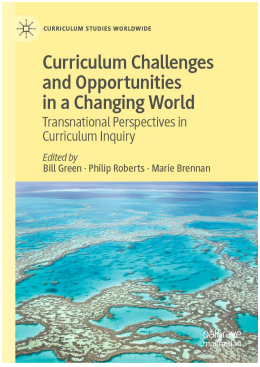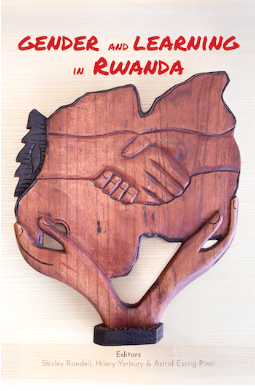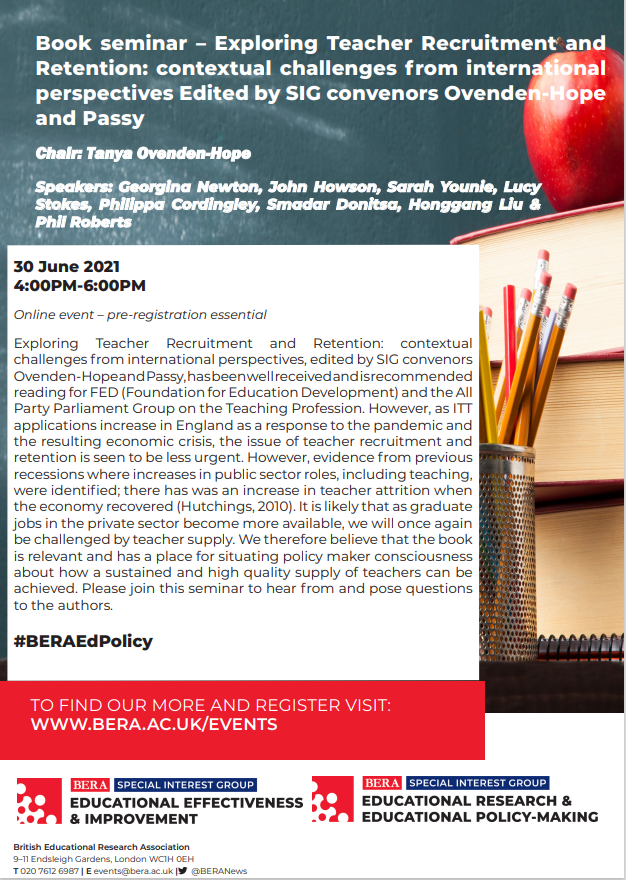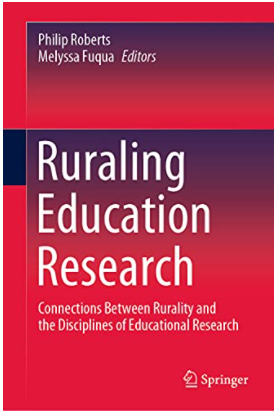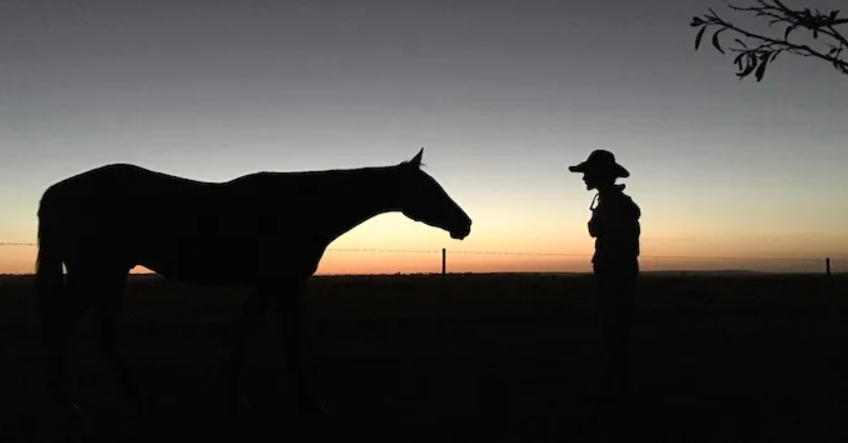News and Events
Rethinking sustainability: community, country & knowledge beyond the economy | Fri, 15 Nov, 9am - 5pm
Centre for Sustainable Communities Prospectus - 2024
UC's Centre for Sustainable Communities invites the community to an insightful, practical and free full-day event to learn about practices and approaches that enhance the social, cultural, economic, and environmental futures of communities and how these can apply in your own work or personal life. You'll hear from researchers working with communities on a range of interesting and impactful projects at local, regional and international scales, participate in thought-provoking discussions and workshops, and contribute your knowledge to the community we bring together and help shape our researchers' work in the future.
There will different sessions to choose over the course of the day to tailor this experience to your interests (check out the full programme below) and an optional networking function from 5pm. Catering will also be provided!
Speakers: Session presenters and facilitators are academic staff members at the University of Canberra, either members of the Centre for Sustainable Communities Research Centre or the University of Canberra Research for Development Network.
Accessibility: this venue is accessible, please advise at checkout if you require any specific adjustments.
Catering: morning tea, lunch and afternoon tea will be provided and will include options for various dietary preferences (GF, dairy free, vegetarian, vegan, nut free, other). Please share any dietary requirements at checkout or via email csc-admin@canberra.edu.au.
Parking: public parking is available opposite the venue on University Drive South. Staff will distribute parking vouchers to guests at check-in to cover the cost of parking for the day.
Health and Physical Education: The Transformative Impact of Figurational Sociology
School Physical Education (PE) is a common thread in our educational journey, yet each person’s experience can be vastly different. For some, PE is a source of joy and achievement, while for others, it can bring about anxiety and discomfort, often exacerbated by traditional methods that spotlight individual shortcomings.
As discussed in a recent edition of Uncover, Associate Professor John Williams has set out to change that.
“A lot of what has traditionally been done in PE can be quite damaging for students. You get kids to highlight their inabilities in front of the whole class. That tends not to happen in other subject areas,” John says.
As a figurational sociologist and teacher educator, Dr John Williams has cultivated an evidence-based HPE teaching program at the University of Canberra where figurational sociology underpins many core units.
Dr Williams’ has significant potential to support marginalised groups including First Nations, gender diverse students, and those with movement impairments, who are especially vulnerable to feelings of alienation in PE.
The CSC commends Dr Williams on his commitment to transformative, innovative and inclusive pedagogy.

CSC SEMINAR SERIES #22
Marketisation and Education: insights from Australia and Sweden
Thursday 5th 4pm-5pm
INSPIRE Centre, Studio One Building 25 University of Canberra
CSC SEMINAR SERIES #22
Marketisation and Education: insights from Australia and Sweden
Thursday 5th 4pm-5pm
INSPIRE Centre, Studio One Building 25 University of Canberra
Professor Laura Perry, Murdoch University, Australia. | Dr Anna-Maria Fjellman, University of Gothenburg, Sweden. |
 |  |
School choice and competition, key elements of educational marketization, are prevalent in many countries. School choice is included in the UN Charter of Human Rights, but it can also exacerbate educational inequalities. In this talk I will examine why they are especially damaging in the Australian context.Laura Perry is Professor of education policy and comparative education at Murdoch University School of Education in Perth, Western Australia. She conducts research about educational opportunities and inequalities, especially as they appear between schools and communities, and the systems, structures and policies that shape them. Specific interests include educational marketization, school stratification and segregation, and school funding. | Sweden's introduction of educational marketization was based on the idea that school choice, private schools, and a tax-financed voucher system could address long-standing issues of social differentiation and mitigate effects of residential segregation. However, instead of redeeming equity in education as initially presented, these measures have been associated with reproducing educational inequalities. The talk will cover some of the consequences for schools, staff and students.Anna-Maria Fjellman is a senior lecturer at University of Gothenburg in Gothenburg, Sweden. Her research focuses on school choice, school markets and school segregation. Her expertise lies mainly in the combination of large- scale analyses and methodologies as applied in examinations of the geography of education. |
DOWNLOAD FLYER
Crafting a sustainability focused curriculum to teach early years learners about their place in a climate-changing world
The CSC's community co-learning project has advanced into Phase 3. Building on the insights from Phases 1 and 2, the team recently spent a day at Isabella Plains Early Childhood School (IPECS). There, they collaborated with teachers, educators, the principal, and residents from a nearby retirement village to co-design a curriculum based on the Common Worlds pedagogy. A total of 14 individuals from IPECS, Isabella Gardens Retirement Village, Communities at Work and University of Canberra participated in the co-design process. This initiative represents the first attempt in the ACT to design a curriculum grounded in the Common Worlds pedagogy. The Common Worlds pedagogy, developed by UC Adjunct Affrica Taylor, aims to decolonise the curriculum and position children as active learners within the world and alongside other species, rather than as passive observers learning about them from a distance.
Dr Naomi Zouwer, a practicing artist part of the UC team, led the group through a series of art-based practices designed to build bonds and stimulate creative thinking. The intensive workshop followed a 'squiggle design' approach, encouraging participants to embrace the 'messy' aspects of creativity before arriving at clear goals and objectives. This method fostered an environment of openness and collaboration, essential for the co-design process.
Residents from the retirement centre, who also participate as the 'Grands' in the 'Gardening with Grands' program discussed how their program, which has successfully engaged senior students (Years 1-2) since 2016, could be adapted to include early childhood learners. Their involvement highlights the intergenerational aspect of the project, emphasising the importance of community and shared experiences in education and aligning with the ACT Education Directorates ‘Stronger communities for Learning’.
The new curriculum, while still adhering to the EYLF 2.0, is expected to draw on various innovative practices, including art-based activities, nature walks, and mapping exercises. These methods aim to engage children with the world around them, fostering a sense of connection and awareness. By introducing these concepts early, the team of collaborators hope to prepare children to face the significant climate challenges of the future with confidence and creativity. In addition to its educational goals, the project team are seeking to strengthen community ties. The involvement of diverse participants, from educators to elderly residents, underscores the project's commitment to inclusive education. This collaborative approach not only enriches the curriculum but also builds a supportive network that extends beyond the classroom. In all, it was a fruitful and engaging day, full of cross-disciplinary knowledge, connection, and a shared passion for the environment and our young learners.
The CSC congratulates the enthusiastic team of UC collaborators including Dr Ann Hill, Dr Bethaney Turner, Dr Naomi Zouwer, Michele Foley, Annie McAppion, Dr Rachael Walshe, and Peter Enge, as well as the IPECs school community and Communities at Work on their remarkable contribution to community-co learning and co-design in the ACT.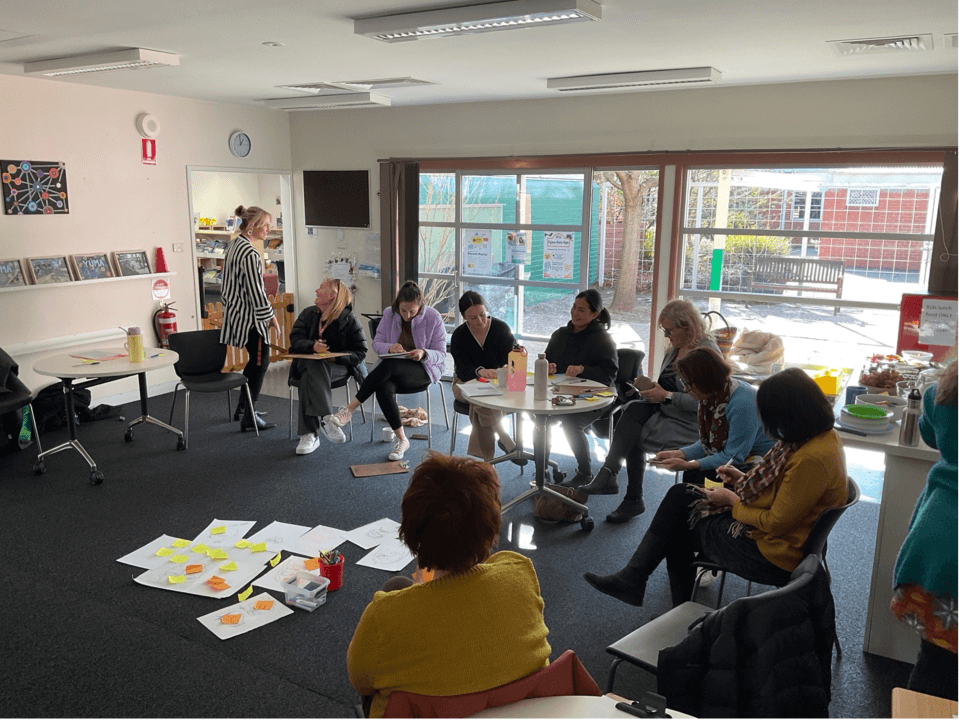
Children need both handwriting and keyboard skills
CSC's Deborah Pino-Pasternak, as well as colleagues Dr Anabela Malpique and Professor Susan Ledger, have recently published an article in the Conversation about their studies into children's handwriting and typing. On the one hand, their analysis showed that primary students generate higher quality written work when using paper and pencil compared to using a keyboard. However, they emphasise the ongoing importance of both approaches in students' education and literacy development. Moreover, they highlight how learning to type is complex, utilising a variety of cognitive, visual and motor processes, requiring frequent practice and instruction. The article provides several suggestions for helping children including dedicating time for practice, joining in, modelling self-correction correction, asking students to read their writing, giving children autonomy, as well as displaying their writing.
Read the full article here. The CSC congratulates Deborah Pino Pasternak, Anabela Malpique and Susan Ledger for their important research efforts.

Dr Roberts and Dr Pino-Pasternak Promoted to Professor
The CSC is delighted to announce the promotions of Dr Philip Roberts and Dr Deborah Pino-Pasternak to Professor!
This recognition is a testament to their exceptional contributions to educational research, unwavering dedication to academic excellence, and commitment to fostering sustainable communities.
As we celebrate their achievements, we also look forward to seeing how their future endeavours will continue to advance our understandings and inspire new research directions.
Upcoming presentation: School education for rural-regional sustainability
Greg Edwards & Philip Roberts
Monday May 13 | Lunch: 12:00pm, Seminar: 12:30-1:30pm | 6C10, University of Canberra | RSVP: csc-admin@canberra.edu.au
This presentation explores the concept of education for rural-regional sustainability (Green 2015). Through the example of a small, remote NSW school, we examine the relationships between education and rural-regional futures. The presentation considers the engagement with rural knowledges, the structure of schooling, curriculum relevance and post-school pathways for remote students.
Ivanhoe Central School is a model of change that puts the needs of the community and its future at the centre of educational reform. Located on Ngiyampaa country the school has 29 students k-12 and is 210 KM on sealed road to nearest town of over 1000 people with a regular supermarket supply. The community is a classic remote low SES context with a school ICSEA of 747. It is what is called a “food Desert” as access to fresh produce is limited to a bi-weekly commercial service that adds to the cost. In response Ivanhoe Central School has developed the “Outback Garden” that facilitates access to fresh produce for the community. Not content with one major reform the school has begun trailing a middle school (years 5-8) to enhance engagement and curriculum connection. This approach begins to address questions of curriculum relevance and the ongoing structural issue of curriculum breadth and school staffing in remote locations.
An intergenerational gardening symposium: Dr Ann Hill engages with partners in Shanghai
Dr. Ann Hill recently participated in a two-day intergenerational learning symposium held at East China Normal University and a community school education centre in Shanghai. The symposium aimed to explore opportunities for older generations to maintain community and family engagement, as well as a sense of purpose and value beyond formal workplace employment. Additionally, it examined ways in which younger generations could remain relationally connected to older generations and continue learning with them despite the differing lived experiences across generations.
During the symposium, Dr. Hill presented on the current work in the UC ACT Education Directorate Affiliated Schools project, specifically focusing on piloting a community co-learning approach to school-based gardening, which she leads. She also shared insights emerging from observing the "Growing with Grands" program at Isabella Plains Early Childhood School.
Dr. Hill hopes to continue this work towards publication and plans to facilitate an online learning exchange about intergenerational learning through school community gardening. This endeavour will involve collaboration with East China Normal University and other universities in Asia and the Pacific region. The CSC welcomes this unique opportunity for cross-cultural and cross-institutional collaboration.
Family Farm Teams (FFT) program success in PNG highlighted in Devpolicy Blog
An article about cocoa farming in PNG highlights the success of the Family Farm Teams program in promoting inclusive gender-based and generational change in farming systems. It stresses the importance of focusing on youth as the farmers of the future. FFT Masterclasses have proved successful in building skills and shifting mentalities towards equitable collaboration among families. Elisabeth Pisiai, who works with cocoa and other crops at the Bougainville Department of Primary Industries, noted:
Especially distribution of labour to ensure no single member of the family, especially women, are overly burdened. For the young people who are also part of the training, these are skills and knowledge that they can learn and hopefully use when they have their own families.
Read the full article here. The CSC would like to congratulate authors Dr. Tom Swan (PhD), Josephine Saul Maora and Chris Fidelis for their efforts, as well as Damien Field, Barbara Pamphilon, David Yinil, and Graham McNally for their contributions.
The Devpolicy Blog provides a platform for the best in aid and development analysis, research and policy comment, with global coverage and a focus on Australia, the Pacific and Papua New Guinea.
Exciting Progress in Culturally Responsive Teaching ACT Action Research Project
The CSC is delighted to report on the latest activities of the Affiliated Schools Research project on Culturally Responsive Teaching. The team of ten ACT primary school teachers and four academics are currently collaborating to transform perspectives and realise the potential of diversity in school communities.
Two successful workshops have already been conducted, where the research team has developed a strong sense of belonging through shared storying and multiple opportunities for sharing professional challenges and insights. We are currently actively sharing and collaborating on redesigning units of work for Term 2, with each participant focusing on their own pedagogical challenge and applying the theory of culturally responsive pedagogy.
In the second workshop, as part a collaboration with the University of South Australia, the team were honoured to have Professor Lester-Irabinna Rigney and Mikayla King (PhD candidate) share their experiences and knowledge from their ARC project, Culturally Responsive Schooling. They shared some examples of the SA teachers’ culturally responsive practices and approaches to action research, and also provided an insight into some of their emerging findings which has been invaluable to our project.
The project will continue through November 2024, with workshops, action research in classrooms, and a final presentation to share findings. The team are excited about the potential impact of this research on teaching practices and student outcomes.
The CSC would like to congratulate the team Dr Margie Appel, Dr Abigail Diplock, Dr Ann Hill and Alanna Heath, the 10 ACT teachers, as well as Professor Lester Rigney and Mikayla King GAICD, for this important work in culturally responsive teaching.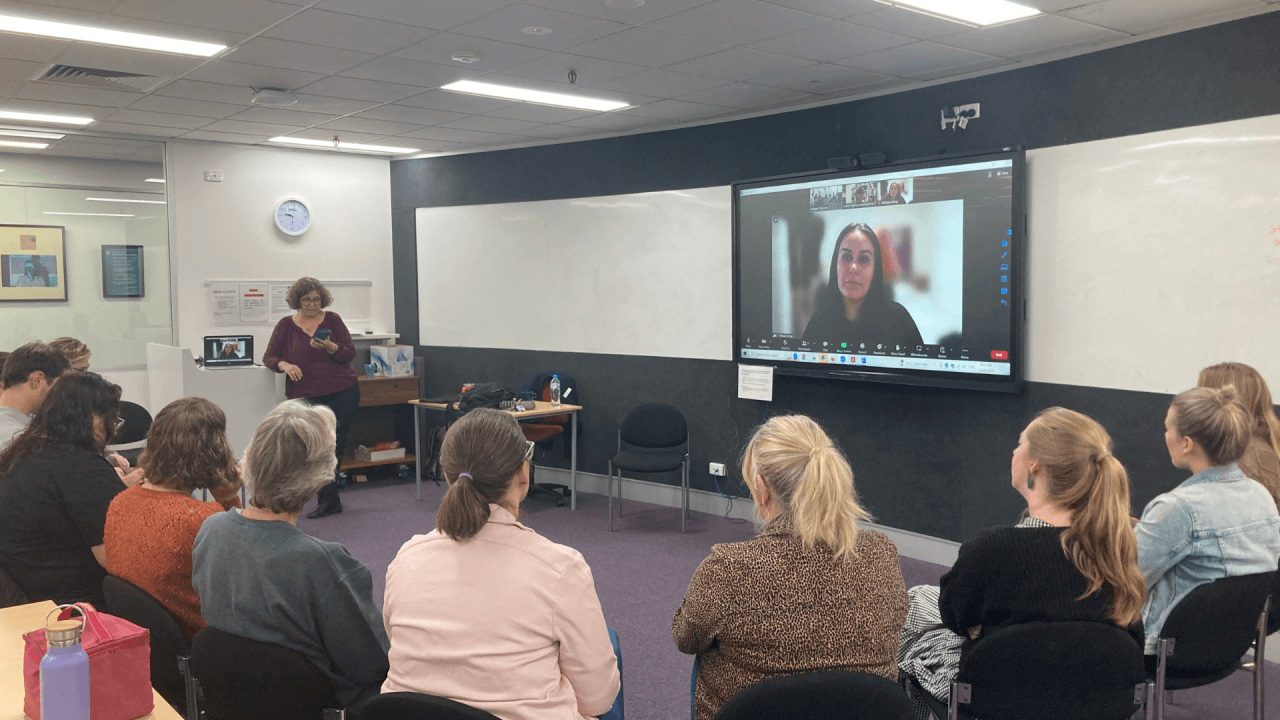
Dr Ann Hill gives presentation at the Faculty of Education at East China Normal University
Dr. Ann Hill recently visited East China Normal University (ECNU) and delivered an invited lecture at the Faculty of Education titled Grassroots Modalities of Learning for More Sustainable Futures.
Throughout her presentation, Dr. Hill highlighted examples from around the world where grassroots efforts are striving to cultivate more sustainable futures for both people and the planet. These endeavors encompass initiatives aimed at nurturing sustainable local food systems, fostering adaptations to climate change, and (re)embedding indigenous languages and communication tools. Such efforts can be viewed as evolving models of sustainability or as steps toward 'sustainment' (Fry, 2017).
In her lecture, Dr. Hill delved into the creation and maintenance of conditions conducive to fostering more sustainable futures. She offered initial reflections on grassroots modalities of learning and their potential lessons for various stakeholders, including academics, educators, policymakers, and development workers. Drawing on global examples, her presentation underscored the learning opportunities that arise from active attention and engagement with grassroots sustainability efforts.
This initiative resonates with CSC's commitment to exploring how communities across diverse settings can cultivate economic, socio-cultural, ecological, and emotional conditions that support both people and the planet in addressing global challenges in the future.
Dr. Hill aims to further this work by fostering global connections and sharing grassroots learning examples across Asia, including China. Currently, she is co-leading a special issue on grassroots modalities of learning with Dr. Justin See of The Sydney Environment Institute. This special issue will feature authors and examples from Australia, Chile, Italy, and The Philippines, with publication anticipated by the end of 2024.
Imagining our food garden: UC community workshop engaging multicultural and intergenerational perspectives on possible school food gardening programs
The CSC and Isabella Plains Early Childhood School recently launched phase 2 of their research project, with an ‘imagining our food garden’ event for the broader school community. After observing an intergenerational gardening program for eight weeks last year at the school, the research team and collaborators are now exploring potential applications and translations of the program.
The workshop attracted 70-80 participants including teachers, students, and retirees. Attendees were actively engaged in various activities, from painting and drawing to enthusiastic discussions. The event exuded a sense of vibrancy and vitality, with attendees expressing a desire for more people to be involved in such initiatives. Notably, children exhibited a keen interest in linking outdoor experiences with classroom learning, demonstrating a sense of ownership and pride in the garden. Parents were also actively involved and excited to witness their children's participation, where minimal distraction from digital technology supported a stronger connection to the community and environment. Furthermore, the workshop fostered closeness among participants, both with each other and with the garden itself, emphasising the collaborative spirit and shared commitment to sustainable living.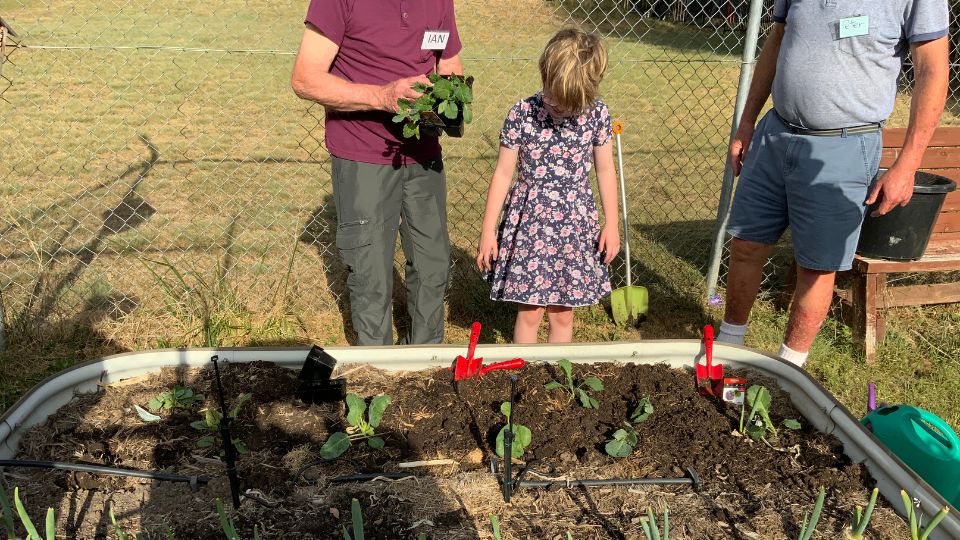
The workshop contributes to strengthening ties with IPECS communities, including migrant families and seniors, by providing a platform for collaboration and shared engagement in sustainable practices like food gardening. Through such initiatives, early years students receive enriched support from a diverse array of community members, fostering a more inclusive educational environment. Moreover, the promotion of collaborative, intergenerational, and culturally diverse projects like food gardening enhances students' personal and social skills while instilling confidence in addressing challenges such as climate change. By advocating for effective models of community-based learning, the workshop aligns with broader educational goals set by the ACT Education and Training Directorate and other schools in the region, thereby extending the reach of experiential learning beyond the classroom and into the wider community.
The project team will continue to work at IPECS and Isabella Gardens, in the spirit of co-designing the research, to understand how we can take the findings uncovered so far to create scalable and translatable programs for schools in the ACT. The CSC congratulates the enthusiastic team of UC collaborators including DrAnn Hill,Dr Bethaney Turner, Dr Naomi Zouwer,Michele Foley,Annie McAppion,Rachael Walshe,and Peter Enge, as well as the IPECs school community on their remarkable contribution to community-co learning through food gardening.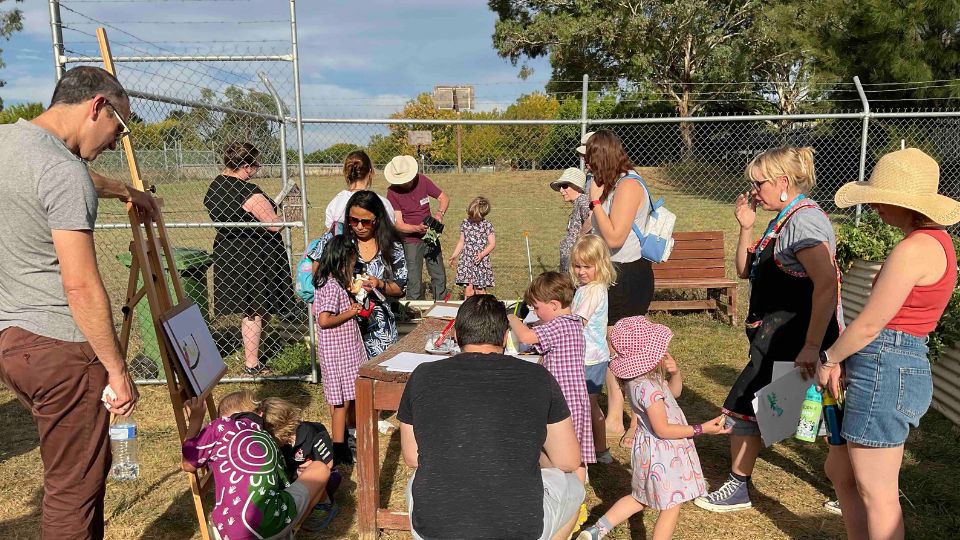
Using history to understand how agricultural extension can better achieve Cambodia’s Zero Hunger by 2030 Policy Agenda
Prof Katharine McKinnon has recently contributed to an article that provides valuable insight to the importance of taking a critical historical view of agrarian change in light of Cambodia’s Zero Hunger by 2030 policy agenda. The authors’ historical overview, published in Critical Asian Studies, uses a political ecology approach to examine agricultural change over time in Northwest Cambodia. The article was led by Assoc.Prof Brian Cook of Melbourne University with co-authors Dr Paula Satizábal, Dr Van Touch, Prof Andrew McGregor, Dr Jean-Christophe Diepart, Dr Ariane Utomo, Dr Nicholas Harrigan, Dr Pao Srean, Dr Thong Anh Tran, and Dr Andrea Babon. Exploring key historical periods, actors, and processes that continue to shape power, land, and farming relations in the region, the article emphasises the relevance of this history for contemporary investments in agricultural extension services and research as part of the Zero Hunger by 2030 policy agenda for achieving the Sustainable Development Goals (SDG). The authors emphasise that agricultural extension projects need to engage critically with historically complex and dynamic power, land, and farming relations – not only as the basis of social relations but as central to understanding the contemporary manifestation of farmer decision making and practice.
“Proposing solutions that are detached from the local context and the complex social, political, and economic dynamics that shape farmer decision-making produces unrealistic imaginaries of agrarian contexts.”
Initiatives such as the SDGs, the article argues, replicate long histories of externally driven power-relations that orient benefits from changed practices towards elites in urban centers or distant global actors. Efforts to realize zero hunger by 2030 are endangered by neglect for the path-dependency of power-land-farming relations, which stretch from the past into the present to structure farmer decision making and practices. The project is connected to an ACIAR funded research project: Next Generation Agricultural Extension.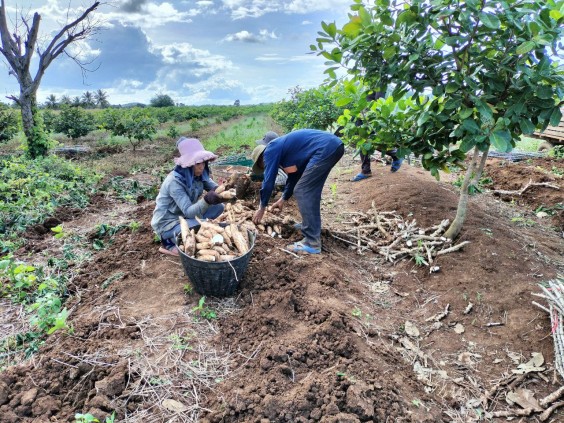
Sydney University to abandon HSC mathematics prerequisites: Dr Philip Roberts comments
CSC research led by Dr Philip Roberts and Dr Jenny Dean continues to impact policy and public debate. Dr Roberts’ and Dr Deans research on access, participation and achievement in the senior secondary curriculum has informed a recent request to Dr Philip Roberts has been asked for comment as part of an article in the Sydney Morning Herald, which reports on a move by Sydney University to abandon HSC mathematics prerequisites to promote access for diverse students.
For some, this is a welcome move as many students do not have the same opportunities for subject selection and success in high school and college. As Dr Roberts notes:
Our research shows that schools which have larger numbers of low SES students are not studying advanced maths at the same rate as schools which have higher SES students.
Yet despite the changes to prerequisites, Dr Roberts notes that some students are still potentially at a disadvantage.
Advanced maths also contributes more to their overall ATAR, so a lack of access limits their opportunities of getting into uni.
Click here for access to the full article.
More details on the research these comments draw upon can be found in this recent article.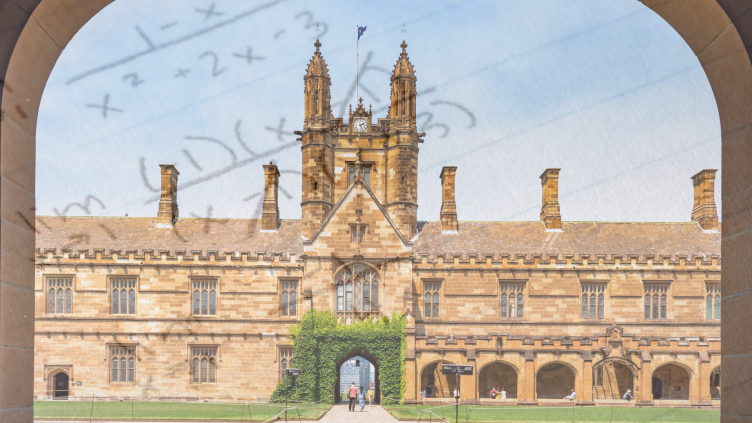
NAPLAN and regional disadvantage: Dr Philip Roberts provides commentary on ABC NSW Drive
In a recent interview with ABC NSW Drive, Dr Philip Roberts discusses the state of NAPLAN testing and the divide between urban and rural contexts. Dr Roberts’ commentary points to the ongoing systemic issues related to regional disadvantage, while also pointing to signs of improvement including positive policy shifts and the potential for online testing methods to broaden the relevancy of NAPLAN questions in rural contexts.
Engaging with and Interpreting the “Global” in Education: Dr Bernard Brown, Dr Ting Wang, and Dr Will Brehm give public lecture
The CSC’s Dr Bernard Brown, Dr Ting Wang, and Dr Will Brehm recently gave a public lecture at the University of Canberra entitled Engaging with and Interpreting the “Global” in Education. The presentation explored three perspectives on global education to examine the complementarities and productive tensions that enable novel paradigms to be developed.
In doing this they sought to articulate and read the "global" in education and interrogate what this concept affords for future educational research that contributes to sustainable global communities. In the presentation, the "global" dimension of education was examined through three prisms related to recent research by the presenters:
- Social Impact Bonds: Unpacking Global Flows in Education Finance
- Rethinking Global Knowledge Production in Educational Leadership and Management: Transcending Western-Centrism and Nationalism
- Global citizenship education: emergence and challenges.
The presentation engaged these prisms to illustrate their effectiveness in examining the trends, issues and challenges that have currency across diverse educational contexts. The engagement may be through the lens of policy, leadership, gender, inter-cultural analysis, economics, history, politics and or systems analyses. The researchers also emphasised that the "global" dimensions of education connect to, and have implications for, education at the national and local levels.
To learn more about their research, please visit the CSC website.
Dr Philip Roberts contributes to research on rural students’ academic buoyancy and academic self-efficacy
Dr Philip Roberts has recently collaborated with Colleagues at the University of New South Wales on an exciting research project on rural students’ academic buoyancy and academic self-efficacy.
Their recent publication explores perceived autonomy support (PAS), which is thought to be predictive of certain self-belief constructs, as a predictor of rural students’ academic buoyancy and academic self-efficacy.
Academic buoyancy refers to students' ability to handle the day-to-day challenges they experience at school. Self-efficacy refers to people's beliefs in their abilities to achieve particular goals.
The results revealed that PAS did positively predict academic buoyancy and academic self-efficacy in the sample group. Multi-group structural equation modelling, a method for analysing relationships among constructs and indicators, further identified that primary school students reported more adaptive school experiences than high school students.
The authors argue that students' academic self-beliefs are associated with their school achievement and enjoyment. However, academic self-beliefs appear to be lower in rural schools.
This research has implications for how schooling systems and teachers can best support students’ academic self-beliefs in rural schools. Urban-centric educational thinking, as well as varied pedagogies, resources, experience, and professional development opportunities, may undermine teachers' confidence in using autonomy-supportive approaches in rural schools.
It is integral, the researchers argue, that all students have access to relevant learning experiences that also support the development of greater agency.
The research relates to the Rural and Regional Education project, which was commissioned by the NSW Department of Education, and completed by the Gonski Institute for Education, the School of Education at UNSW Sydney, Social Ventures Australia, and the University of Canberra.
Click here to access the final report.
Co authors: Dr Andrew Kingsford-Smith, Dr Dennis Alonzo, Dr Kim Beswick, and Dr Tony Loughland.
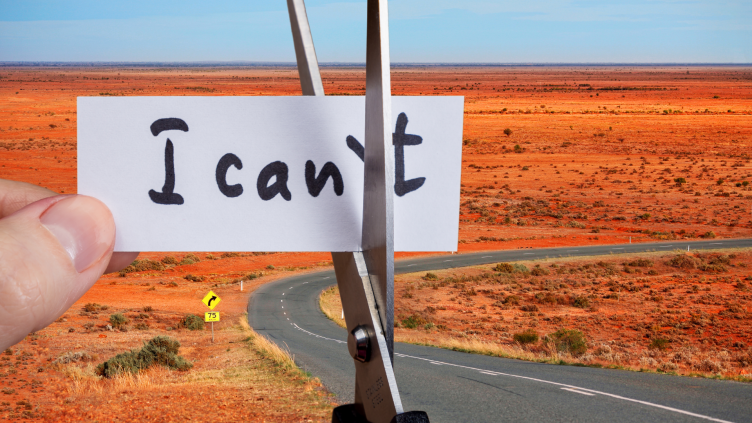
The Spectrum of Teaching Styles (The Spectrum) in physical education: Michael Davies, Shane Pill and Brendan SueSee offer new insights
Michael Davies has recently published a paper in collaboration with colleagues Shane Pill and Brendan SueSee on The Spectrum of Teaching Styles (The Spectrum), a framework introduced in 1966 by Muska Mosston, as a pedagogical model in teaching physical education (PE).
Published in European Physical Education Review, the article explains how The Spectrum details the 'how', 'when' and 'why' of teachers' pedagogical decisions in understanding how they may meet educational outcomes for increased curriculum alignment, or successful enactment of models-based practices. The authors argue The Spectrum helps PE teachers understand the context-specific realities of teaching and therefore improves teaching and learning practices in PE by helping teachers align their pedagogy with their desired learning outcomes.
The article also builds on their earlier discussion on Models-Based Practice in the Journal of Teaching in Physical Education. Congratulations to the authors for this engaging contribution to educational research!

Professor Barbara Pamphilon and PhD candidate Matthew Griffith publish new paper on adult learning and public health
Professor Barbara Pamphilon (CSC) and PhD candidate Matthew Myers Griffith (ANU) have recently published research exploring the adult learning approach of the world’s first field epidemiology training programme (FETP). The program began in the US in 1951 to respond to the growing need for health professionals who could investigate disease outbreaks. FETP programs are now in two thirds of the world’s countries and territories.
The article in the International Journal of Lifelong Learning elucidates how the foundational FETP intertwined experiential learning, constructivist, and humanist-situated approaches in contrast to the dominant behavourist medical education approach of the time. Key findings include:
* The program’s emphasis on learning through real-life experiences and practical field assignments.
* Alignment with adult learning theories like Knowles's andragogy, Kolb's experiential learning cycle and Lave and Wenger’s legitimate peripheral participation in communities of practice.
* The significance of a constructivist humanist-situated approach in fostering self-actualisation and active participation in social and cultural contexts.
* The role of culture and critical learning in enhancing public health training.
Given the recent challenges of COVID-19, this article has implications for global public health and pandemic preparedness as it illuminates the adult learning theories that can enhance the development of technically sound, critically aware, and culturally adaptable public health professionals.
We congratulate the authors on this fantastic research achievement. Click here to access the full article.

Decolonialising PE Using A Game Sense Approach: Michael Davies & colleagues promote the ‘coming together’ of Aboriginal and Western knowledge systems
The CSC’s Dr Michael Davies has published a chapter in collaboration with Professor Shane Pill and Professor John Evans in Teaching Games and Sport for Understanding, a compelling edited collection that provides insight, learning and opportunities to foster game-based teaching and coaching ideas, as well as provide conceptual and methodological clarity where a sense of pedagogical confusion may exist.
The chapter by Davies, Pill and Evans is entitled Decolonialising PE Using a GBA, and provides evidence for why ‘closing the gap’ requires the ‘coming together’ of Aboriginal and Western knowledge systems. In particular, it is argued physical education (PE) educators need to move away from Eurocentric PE that fails to acknowledge Indigenous perspectives to bridge this gap of what we know or think PE is ought to be. Instead, by taking a ‘non versus’ view synergy exists, where the authors propose ‘a way’ using a Game Sense Approach (GSA), which invites students into a narrative with a game through inquiry-based learning, while Yunkaporta's 8 Ways demonstrates why narrative, or story as pedagogy, is fundamental to Aboriginal processes of learning.
The chapter also contends that reflection and purposeful social interaction through play (GSA), make learning visible which is central to Aboriginal epistemology. While Yunkaporta's 8 Ways give opportunity for meaningful place-based learning, linking content to local land and nature, referred to by Aboriginal Australians as ‘Country’, encompassing not simply people and places but all entities alive with spirit and sentience.The book was edited by Professor Shane Pill, Ellen-Alyssa Gambles and Linda Griffin, and is available through Routledge.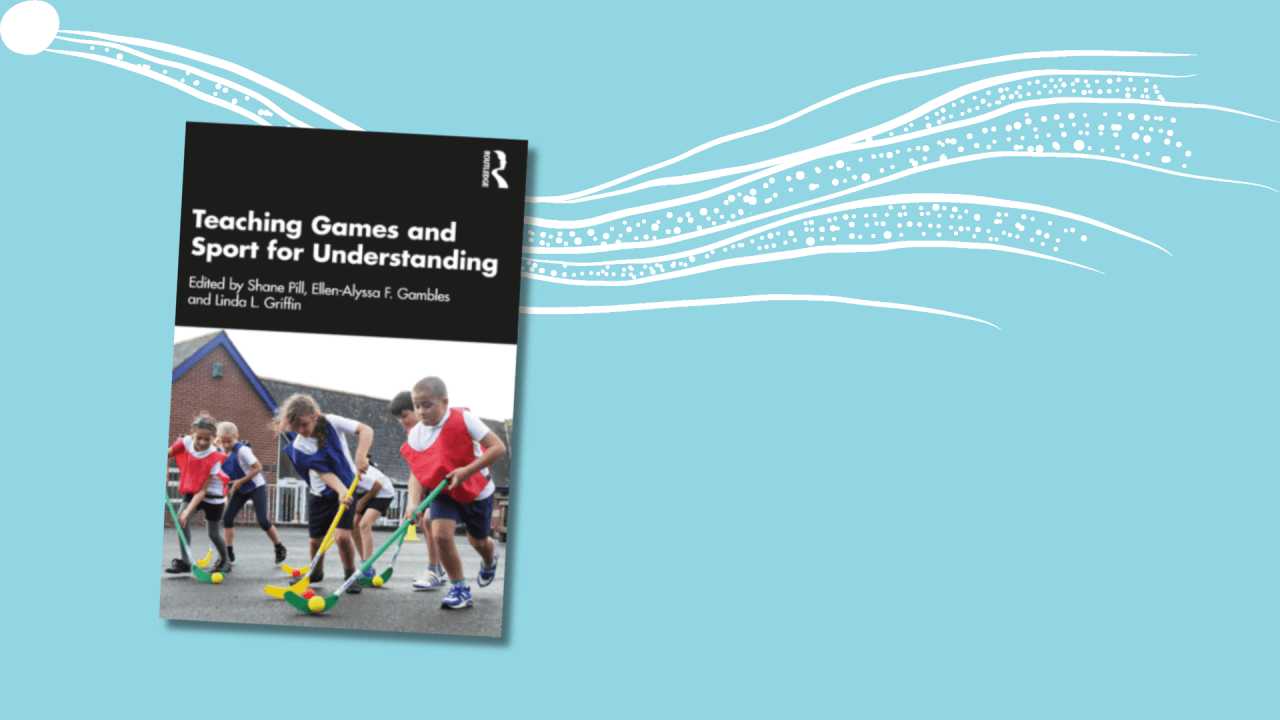
Cynthia Avoada discusses rural schooling in Ghana at 2nd ANU African Studies Network Conference
Recently, CSC HDR candidate Cynthia Avoada presented her latest research at the 2nd ANU African Studies Network Conference.
Cynthia’s project examines how teachers’ pedagogies currently meet rural students’ educational needs in Ghana. Moreover, the project explores how rural education in Ghana could be enhanced by place-based pedagogies. She argued that while educational outcomes in rural areas are typically behind urban areas, a metropolitan-colonial form of education has proved unsuccessful as rural communities are intricately connected to their surroundings.
Cynthia’s presentation introduced the key theoretical framework behind her research. She emphasized that within the Ghanaian context, knowledge is socially constructed through oral conversations and interactions. Therefore, a blend of classroom curriculum content and learners’ everyday life is important to increase students’ academic outcomes and educational relevance in rural areas. This makesher question the forms of knowledge inquiry that focus solely on western forms of education.
Her ongoing research will apply a Ghanaian philosophical lens to examine how teachers’ pedagogies meet rural students’ educational needs and explore how rural education in Ghana could be enhanced by place-based pedagogies. The study uses Boomers Curriculum Negotiation and Bronfenbrenner’s Ecological theory as a theoretical framework to show how the curriculum through teachers’ pedagogy can be situated and linked to local school communities.
We look forward to the research findings and congratulate Ms. Cynthia Avoada for her excellent work!

Dr Justin See and Dr Katharine McKinnon collaborate with several researchers on traditional and Indigenous climate change adaptation
Dr Katharine McKinnon, in collaboration with colleagues Dr Justin See, Ginbert Permejo Cuaton, Pryor Placino, Suli Vunibola, Huong Do, and Dr Kelly Dombroski, have recently published a paper on traditional and Indigenous climate change adaptation knowledges and practices in Fiji, Vietnam and the Philippines.
The article argues that traditional and Indigenous knowledges and strategies are marginalised by modernist approaches to adaptation, identifying several cases, ranging from weather forecasting to post-disaster housing projects, where institutions and groups have privileged mainstream methods.
Moreover, they suggest that modernist adaptation approaches frame climate as something that can be controlled and understood rationally, thus discounting alternative ways of problem-solving. The suppression of traditional and Indigenous approaches adaptation, the researchers argue, has led to increased vulnerability and marginalisation among local communities.
The article emphasises that people’s local and place-based knowledges are assets that help them better adapt to climate change. As such, adaptation planners and practitioners should listen with openness to plural forms of knowing and being.
2023 AARE Conference a Success: Several CSC Members Present
Recently, the The Australian Association for Research in Education (AARE) conference took place at The University of Melbourne. The theme of the conference this year was Voice, Truth, Place: Critical junctures for educational research.
The CSC’s Dr Margie Appel, Dr Deborah Pino-Pasternak, Dr Moosung Lee, Dr Philip Roberts, Dr Jenny Dean, and Ms Natalie Downes all participated in the conference to explore critical junctures in the field.
Ms Downes and Dr Roberts presented on a project that considers the possibility that constructions of rural education disadvantage may be influenced by the knowledges valued in academic research. The project highlighted differences in engagements with rural education between journals in the fields of rural studies and education studies, including methodological approaches, definitions of key terms, understandings of what constitutes education, and the topics studied. This analysis informs a framework currently being developed that will support broader understandings of rurality and rural education by bringing together different sources of knowledges and discussions that relate to rural education.
Dr Deborah Pino-Pasternak presented alongside Dr Anabela Malpique a soon to be published study written with Debora Valcan, Professor Susan Ledger, and Mustafa Asil. In this study they examined the unique contributions of automaticity in both handwriting and keyboarding in predicting Grade 2 students (N = 49) paper-based and keyboard-based writing performance (i.e., compositional quality and fluency). Results showed that automaticity predicted students’ paper-based compositional quality and keyboard-based compositional quality and production. Findings further suggested that the relationship between automaticity and writing performance was stronger in keyboard-based text composing than in paper-based text composing. These results reinforce the role of automaticity of transcription skills in predicating the writing performance of beginning writers across modalities, and stress the significance of explicit pedagogy and frequent instances of practice to promote the mastery of transcription skills across modalities in the early years of schooling.
Dr Appel and Dr Lee presented alongside their colleagues Emily Hills, Chris Morrissey, and Kate Halcrow on their research as part of the Teachers as Researchers program. Their presentation highlighted key learnings from the delivery of the program over the past five years. Using a thematic analysis of archival qualitative and quantitative data from program evaluations, the researchers addressed the research question: How is school improvement achieved through teachers’ professional learning?
Finally, Dr Dean explored the spatial implications of current school composition, and how spatial issues of inequality are embedded in systems of school curriculum and knowledge. Her presentation examined access to the curriculum in government and non-government schools and how locational variability has an association with the participation and outcomes of students in these schools. Drawing primarily on the ideas of Henri Lefebvre, Dr Dean argued that spatial relations can reproduce persistent inequalities, particularly in post-colonial contexts such as Australia. They contribute to students’ constrained capacity to benefit from schooling and continue to predict the educational futures of students.
We congratulate all presenters and the conference organisers for their exceptional efforts.

Dr Will Brehm co-edits book on education and power in Southeast Asia
Dr Will Brehm, in collaboration with colleagues Dr. Azmil Tayeb and Dr. Rosalie Metro, has recently published an edited collection on education and power in Southeast Asia. The book analyzes the ways in which education has been instrumentalized by state, non-state, and private actors across the diverse region.
The book brings together scholars from across the region and looks at how countries respond to the endogenous and exogenous influences in shaping their education systems. Chapters observe and study the interplay between education and power in Southeast Asia, which offers varying political, social, cultural, religious, and economic diversities.
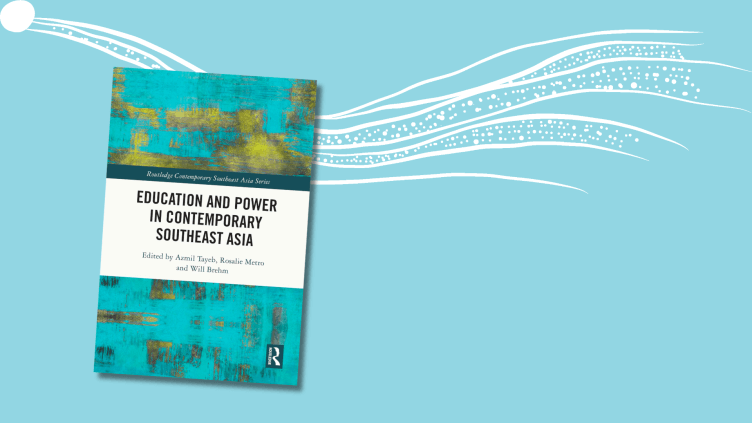
Dr Philip Roberts comments on the equity implications of school subjects in the Sydney Morning Herald
Dr Philip Roberts’ research and commentary have recently been cited in a Sydney Morning Herald article by Christopher Harris. Dr Roberts research, co-authored with Jenny Dean and Garrett Lommatsch, explores why some subjects are studied more than others, as well as implications for equity and practice. The study, based on 2019 HSC (High School Certificate) data, identifies specific subjects that are more prevalent among private school students. According to the findings, private school attendees are more likely to study certain languages, economics, extension mathematics, and a variety of arts subjects. In contrast, public school students are more inclined to enrol in vocational education courses. While some data suggests that the most demanding mathematics courses are taken by public school students, Dr Roberts suggests that this is due to the large number of selective schools in NSW.
“The vast majority of those students are in the selective schools or in the selective streams at other public schools.” The research emphasises how students from low socio-economic backgrounds and those residing in rural and regional areas are funnelled into subjects characterised by lower average achievement levels.
“There is a notion in operation what sort of subjects more rural or working-class kids would do as opposed to the subjects more advantaged kids would do,” he said.
This has a substantial impact on students’ outcomes and futures, as subjects considered traditional and challenging tend to result in a higher ATAR (Australian Tertiary Admission Rank). Conversely, subjects with a higher enrolment among public school students, such as society and culture, are perceived as easier and do not contribute as favourably to a high ATAR.

Professor Ting Wang co-authors article on individual and organizational readiness for change
Dr Ting Wang and her colleagues Dr Dianne F. Olivier and Dr Peiying Chen have recently published an article on individual and organizational readiness for change. Clearly, these factors are critical precursors to successful change implementation in school education. However, this area has long been neglected in published research, both from a conceptual and empirical perspective. Therefore, the authors propose a conceptual framework of system readiness for change in school education, informed by evidence from existing literature and their previous research on the School Actualization Program in Taiwan. The proposed framework includes four stages, ranged from non-readiness-oriented, development-oriented, performance-oriented, to sustainability-oriented. The article provides insights into the dynamic interaction and readiness for change process, therefore offering possibilities of debates and further empirical studies in school settings. Finally, the authors discuss the implications of the framework in school and system improvement from a cross-national perspective. We congratulate Dr Wang and her colleagues, Dr Dianne F. Olivier and Dr Peiying Chen, for this exceptional research achievement.
Click here for access to the article.
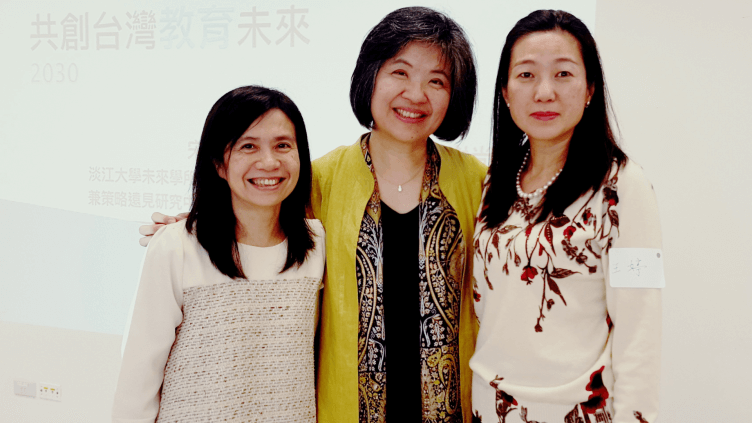
Dr Will Brehm co-authors new UNESCO background paper on technology in education
UNESCO has just launched its regional report on EdTech in Southeast Asia with a background paper co-authored by the CSC’s Dr Will Brehm. The paper, written in collaboration with Mono Tuot, Hunly ITH, and Alexander Towne, explores educational technology in Cambodia. The paper draws on data from the 2017 Cambodia Socio-Economic Survey, policy documents, and interviews with teachers, principals, and students, as well as higher education across three provinces.
The paper outlines the main challenges in terms of education and technology in the country, the potential ways to overcome these challenges, as well as the negative impact of technology on the teaching force. The paper also addresses new modalities of private tutoring that have emerged as teaching content moved online because of Covid-19, as well as the absence of critical media studies.

Dr Pino Pasternak and Dr Moo Sung Lee honoured with university-wide awards
The CSC’s Dr. Deborah Pino-Pasternak and Dr. Moosung Lee have been recognised and celebrated with university-wide awards for their exceptional records in teaching and HDR supervision.
Dr. Pino-Pasternak's teaching methodology is rooted in Self-Determination Theory, a foundation that has proven remarkably successful in two units of the Master of Education program she has convened and taught since 2021.
The university has duly acknowledged the outstanding impact of Dr. Pino Pasternak's approach, particularly in enhancing the research capabilities of teachers and educational leaders in Canberra and the surrounding region. Her pedagogical approach has contributed to enhancing ACT and NSW educators’ confidence, knowledge and skills as researchers.
Dr Moo Sung Lee's PhD candidates emphasise not only his extensive knowledge but his generosity, encouragement, patience, reliability and pragmatism. They have expressed their heartfelt appreciation for his invaluable contribution to their educational and professional journey, an enduring accomplishment that has also been accordingly recognised by the university.
We extend our congratulations to Dr. Pino Pasternak and Dr. Moo Sung Lee for their well-deserved recognition.
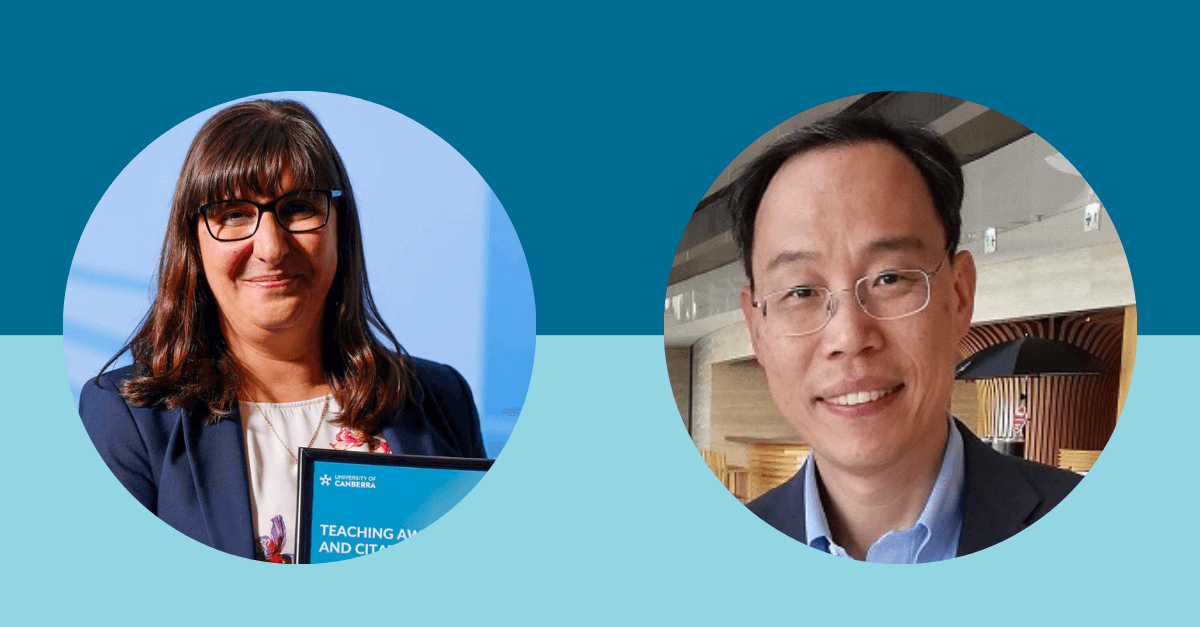
CSC members to participate in Faculty of Education research conference
Several CSC members including Dr Margie Appel, Dr Michael Davies, Dr Sandra Heaney-Mustafa, Dr Bernard Brown, and Dr Jenny Dean recently participated in an exciting Faculty of Education research conference at the University of Canberra. The conference theme, Doing Things Differently in Education Research, posed the question of what knowledge is within education.
Dr Michael Davies (alongside Dr Naomi Zouwer) presented on the arts for health and wellbeing. Dr Margie Appel, a recent addition to the CSC team, joined Julia Davies-Duff, Amber Piper, Emily Regan, and Sally Rule to discuss a case study of a HDR online writing group. Dr Sandra Heaney-Mustafa discussed work done in Pakistan with small farmers, research academics, agricultural extension officers and policymakers to adapt to living with salinity. Dr Ann Hill joined Dr Bethany Turner, Dr Naomi Zouwer, Rachael Walshe, Annie McAppion, and Michele Foley to report on a project about community co-learning through school-based food gardening.
Dr Will Brehm engaged us in an interactive workshop on podcasts as pedagogy. Finally, Dr Jenny Dean's presentation explored factors which positively and negatively impact on diversity and representation in higher education.
The conference was a mix of research presentations, panel discussions, round table discussions, workshops, performances and more. Congratulations to our members for their tremendous efforts!

What Shapes Primary School Keyboard Writing? Deborah Pino-Pasternak and Colleagues Publish New Research
The CSC's Dr Deborah Pino-Pasternak has collaborated with several Australian and international researchers (Anabela Malpique , Debora Valcan, Professor Susan Ledger, Mustafa Asil, and Timothy Teo) to explore the factors impacting keyboard-based writing and relationships with writing instruction in primary school settings. A report on the research findings was recently published in EduResearch Matters.
In Australia, children are expected to develop computer-based writing skills as soon as they start schooling yet the writing performance of students is plateauing or even declining.(Malpique & Pino-Pasternak, EduResearch Matters)
Part of the Writing for All research initiative, the study focused on 544 Year 2 Students in Western Australia, examining the contributions of keyboarding automaticity and spelling in predicting young writers’ keyboard-based text composing. The study found that keyboarding automaticity, spelling, writing attitudes, and gender predicted keyboard-based compositional quality. The study also found that teaching keyboarding and revision were positively related to compositional fluency, while teaching handwriting was negatively related to compositional quality. Given the literature suggesting male advantage in performance and attitudes towards technology, a surprising finding was that female students wrote longer and high-quality computer-based texts and showed higher levels of typing automaticity. Female students also demonstrated more positive attitudes towards writing and better performance in reading comprehension tasks.
The research emphasises the importance of creating classrooms that explicitly nurture high-quality computer-based writing for effective skill development. The explicit teaching of keyboarding and regular practice within meaningful writing tasks, the researchers suggest, are also essential to support keyboarding automaticity. Finally, recognising the gender impact on computer-based writing, the research underscores the need for differentiated keyboarding instruction in the early years to address potential gaps in subsequent schooling.
For access to the journal article, please click here.

Some Students are Missing Out on Advanced Science and Mathematics – New Research Reports
The CSC's Dr Jenny Dean and Dr Philip Roberts, in collaboration with Dr Steve Murphy (La Trobe University), have recently published research exploring access to senior school science and mathematics subjects in the final year of secondary schooling. The study drew on data from the New South Wales education system, including all schools that enrolled any Year 12 student engaging in at least one examinable subject in 2017. The research found substantial inequalities, with school location, socioeconomic composition, enrolment size and the availability of teachers predicting the probability of whether a school offers the least and most advanced science mathematics subjects. While the study is a strong contribution to the substantial body of research exploring educational inequality in Australia, it is particularly successful in demonstrating inter-school inequalities in access to science and maths curricula, an area where further empirical research and appropriate policy response is necessary.

New book on strengths-based international development highlights FFT success
Recently, the CSC’s Professor Barbara Pamphilon joined her co-contributors, as well as various practitioners and stakeholders, at the launch of Reframing Aid: A Strengths-based Approach for International Development. The event, which explored the strong theoretical and practical basis of a strengths-based approach to international development, was led by the book’s authors Dr Keren Winterford, Deborah Rhodes and Chris Dureau. The book provides an extensive account of the shift from a deficit or needs-based approach to development towards a strengths-based approach, drawing on diverse case studies from around the world. A strengths-based approach aims to reveal assets, strengths or what is working within an individual, group, community or organisation, then uses these strengths as a way to achieve change and preferred futures.
The book sets out the thinking, practical action and evidence-base to inform a sector-wide transformation. For many, this is a radical or even revolutionary shift, but for others, the writing is already on the wall.
Professor Pamphilon is featured prominently in Case Study 14. Dr Pamphilon’s previous research, training programs and a book-exclusive interview supported fascinating insight into various examples of strengths-based practice, including the CSC’s FFT program.
A number of Papua New Guinea agencies have integrated the FFT approach and learning activities in their work: FPDA Village Extension Worker program and Gender Equity and Social Inclusion policy, Oxfam Sustainable Livelihoods program, PanAust Women in Mining (Extractives), and Voice for Change Women’s Economic Empowerment program. It has also been adapted by Oxfam and Femili Papua New Guinea for their gender justice, violence prevention and recovery programs.
(Pamphilon, cited pg. 166)
Dr Pamphilon’s work in the PNG has also enabled the expansion of the FFT program across the Pacific, funded by the Pacific Horticultural and Agricultural Market Access Plus Program (PHAMA Plus) and into rural Solomon Islands, where the Dr Deborah Hill from the CSC has been working with Live and Learn Environmental Education on an ACIAR-funded project to improve agricultural development opportunities for female smallholders.
Dr Pamphilon said:
I wish I had this book when I was teaching community development as it is a great way for students to see the principles, processes, and potential of strengths-based practice. But it is also relevant for anyone working in the development space— I have already recommended it to a number of colleagues.
Click here for more information about FFT
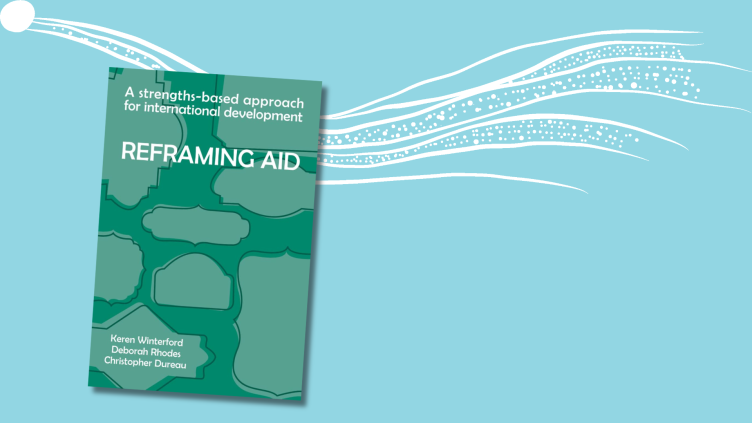
Philip Roberts discusses rural education at the University of Gothenburg
Associate Professor Philip Roberts has just visited the University of Gothenburg as a Visiting Scholar to participate in a seminar on education in rural areas. While Gothenburg colleagues Dr Monica Johansson and Professor Elisabet Öhrn presented on Swedish education research projects, Dr Roberts presented his findings from examining rural education in Australia. Furthermore, during a collaborative workshop, attendees discussed several important questions facing rural education moving forward including:
· What challenges and opportunities exist when/if we break the urban-rural dichotomy?
· How does metrocentrism become visible in educational research and what does it mean?
· What are the important issues to collaborate on in the future?
Cross-institutional collaborations are essential to maximise resources, knowledge, and impact. As such, the seminar was an invaluable chance to better explore and understand rural education across diverse contexts, as well as stimulate opportunities for fruitful partnerships between the CSC and the University of Gothenburg's inspiring education researchers.
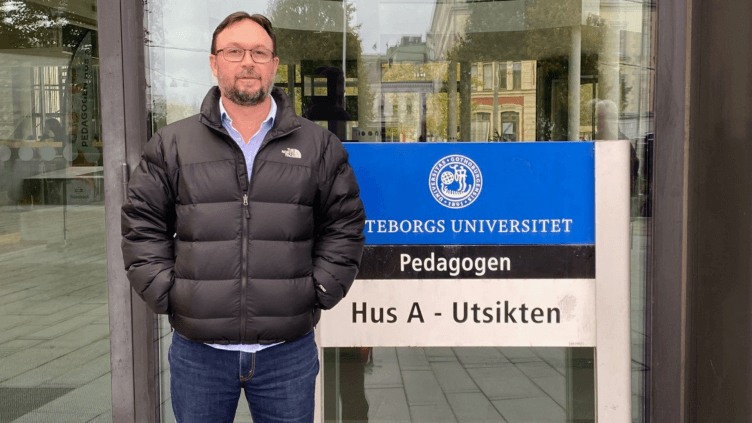
CSC researchers present at 2023 Australian Association for Environmental Education
At the end of September, the CSC’s Jordan Harrison and Monty Nixon, both Senior Research Assistants on the Country as Teacher project, presented at the Australia Association of Environmental Education (AAEE) biannual conference.
Both researchers were fortunate enough to be financially supported to attend the conference by Australian Association for Environmental Education Inc (AAEE), both awarded the Arthur Thynne Reid scholarship, and Monty the Brian Foreman scholarship as well.
The conference brought together environmental educators from across Australia to discuss the theme Listen to Country, Learning together and Transforming the future. Jordan and Monty’s presentation shared the emerging findings from the Country as Teacher research. The Country as Teacher project demonstrates the transformative nature of students’ and teachers’ direct experiences learning via ‘Relating with Country’. This educational practice helps foster relational reciprocity between humans and Country, a way of learning practiced in Australia for thousands of years.
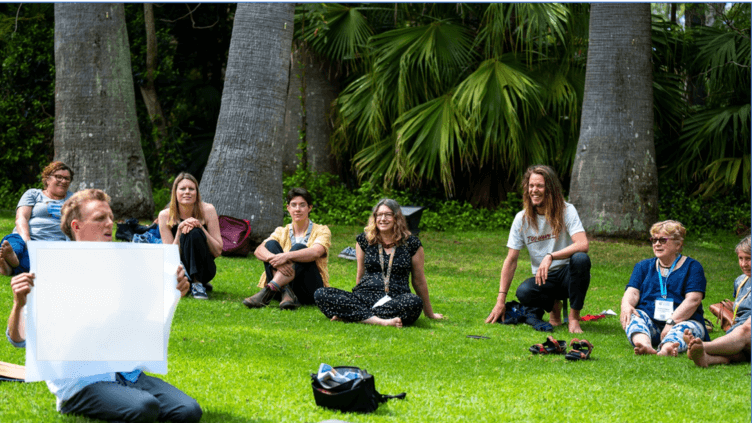
CSC researchers share new resources in Solomon Islands
In recent months, Professor Barbara Pamphilon and Associate Professor Deborah Hill took part in a workshop with staff from Live and Learn Environmental Education, as well as attendees from Dignity Pasifik in Honiara. The workshop included time spent sharing experiences of facilitating FFT workshops in Solomon Islands.
Live and Learn Environmental Education is the main Solomon Islands partner in the ACIAR funded project 'Improving agricultural development opportunities for female smallholders in rural Solomon Islands'. Project Co-ordinator Delmay Basi (LLEE, SI) shared her experiences of leading workshops in Longgu district, Guadalcanal. Staff from Dignity Pasifik, led by Ruth Maetala, had previously incorporated some FFT activities into other livelihood and gender training programs.
The workshop was the first opportunity the FFT Solomon Islands project team had to share the FFT Solomon Islands manual. The manual closely follows the content of the manual developed in PNG for the FFT program there, under the leadership of Professor Barbara Pamphilon, and in collaboration with PNG communities and PNG FFT trainers. The Solomon Islands manual includes additional activities that were trialled in in the Longgu district workshops, as well as some adaptions, reflecting the way the activities were run in the Solomon Islands' context. One example of this is the inclusion of more role-plays (dramas) in the Solomon Islands manual.
The design of the manual includes a new FFT logo and the use of colours from the Solomon Islands' flag. The companion evaluation pack is a guide to running activities, collecting feedback and evaluation of activities, as well as reporting on the workshops.
The project team recognise that the development of resources contributes to the development and accessibility of the FFT program in the Solomon Islands. The resources also advance the successful implementation of the associated project 'Improving agricultural development opportunities for female smallholders in rural Solomon Islands', which is funded by the Australian Centre for International Agricultural Research (ACIAR). The manual and companion evaluation pack are available for download by anyone wanting to run the FFT program in Solomon Islands, furthering the impact of the FFT program on families and communities. Further resources to support the FFT program in Solomon Islands are currently in development.
Further information about the project is available on the ACIAR blog.
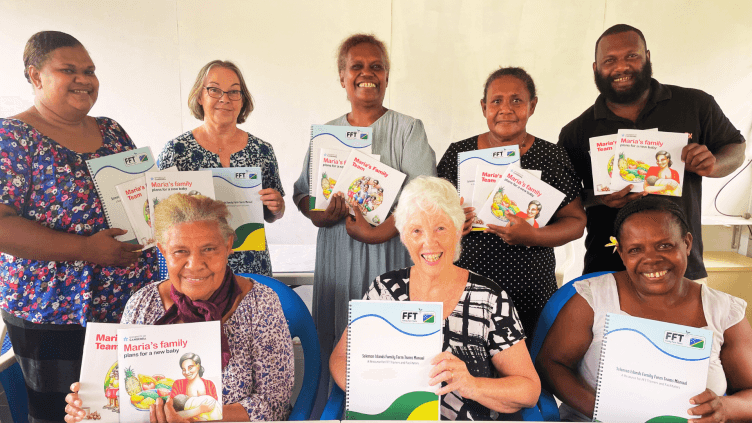
New partnerships and opportunities for comparative research in education: Dr Bernard Brown’s promising research trip to Mexico and Colombia
Dr Bernard Brown from the CSC recently visited Colombia and Mexico to establish research partnerships at Los Andes and La Sabana University in Bogota, as well as the National Autonomous University of Mexico.
The research is focused on global citizenship education, which has been identified as a priority by the United Nations and UNESCO in terms of world education goals and trajectories. The research has great potential to assist educators and school leaders in designing and implementing innovative programs and curriculum to conduct citizenship education. Currently, comparative research in education between Australia and Latin America is underdeveloped and limited in scope. As such, new partnerships and methodologies are essential for the advancement of the field.
The research also extends UC’s and the CSC’s international outreach which is a key strategic goal. Furthermore, as the research is transnational and cross-disciplinary, drawing approaches from Political Science, Sociology and Education, it has the potential to yield more nuanced understandings of global citizenship education.
Currently, the research project is linked to two grant applications, several journal papers and further project work.
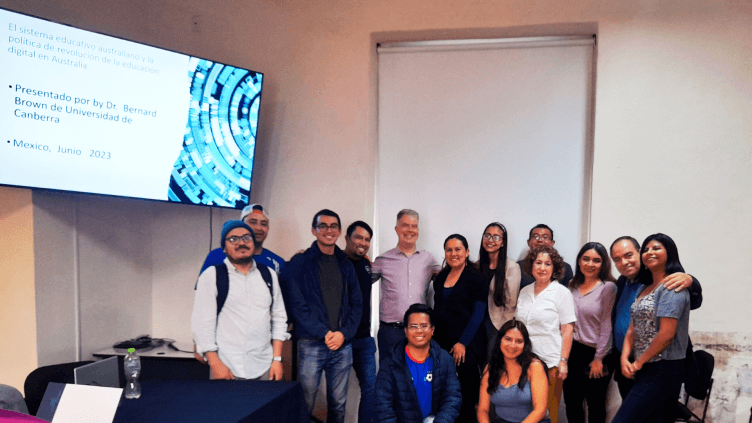
Dr John Williams on teaching the Health Education component of Health and Physical Education
The CSC's Dr John Williams has recently co-published two articles in Curriculum Perspectives on the experiences of teaching the Health Education component of Health and Physical Education. The first article explores the experiences of generalist teachers in a Tasmanian context, employing a mixed methods approach to examine the value placed on health education (HE) in relation to other subject areas, as well as the various obstacles to the prioritisation of HE. Given the seemingly disenfranchised status of HE, the article advocates for a whole of school approach, increased teacher collaboration and HE professional learning opportunities to facilitate increased prioritisation of HE. A second article focuses on the experiences of Physical Education (PE) specialist teachers’ in particular. This research also led to several recommendations including improved collaboration between class teachers and PE teachers, increased support and prioritisation from senior staff (e.g. principals) and increased HE professional learning.
These research outputs were the result of collaborations between Dr Williams and several academics including Dr Vaughan Cruickshank, Associate Professor Shane Pill, Dr Casey Mainsbridge and Dr Rosie Nash.
The CSC congratulates Dr Williams and his colleagues for this fantastic achievement!

CSC researchers collaborate with Isabella Plains Early Childhood School and Isabella Gardens Retirement Village
Research suggests that interactions in the garden help children navigate personal and social challenges, as well as pressing global issues like climate change and food systems decline. However, many school gardens in the ACT remain underused, with teachers often feeling time-constrained and ill-prepared to integrate gardening into their programs.

A new research project within the Centre for Sustainable Communities is employing a community co-learning approach for developing a food gardening program. The initiative is currently underway at Isabella Plains Early Childhood School (IPECS), targeting preschool to year 2 students. The project builds on an existing ‘Growing with Grands’ program and other linkages the school has established with retired community members. The team consists of several researchers from UC including Dr Ann Hill, Associate Professor Bethaney Turner, Dr Naomi Zouwer, and ECR Rachael Walshe. The IPECS contributors include Michele Foley and Annie McAppion, while Peter Enge represents the Isabella Gardens Retirement Village.
The diverse skills and expertise of this team will allow the project to combine community collaboration, inquiry-based learning, and interdisciplinary methods to create a meaningful and authentic co-designed program.
The project seeks to contribute new insights and conversations to the geography and education literature fields through empirical findings. Projected contributions to the community in the broader ACT region include:
· Strengthening ties with the IPECS community, including migrant families and seniors, to better support early years students.
· Promoting collaborative, intergenerational and culturally diverse community projects such as food gardening to boost students' personal and social skills. This will also help them gain confidence in addressing various challenges like climate change.
· Advocating for effective models of community-based learning that bring real-life experiences into the classroom and extend education to the wider community, including the ACT Education Directorate and other ACT schools.
In October the team will begin the process of gathering baseline data that will feed into the next phase of the project – building and co-designing a garden-based curriculum and a community co-learning model. The model will then be taken to the ACT Education and Training Directorate and into other school settings here in the nation's capital territory.
CSC HDR Spotlight: Genevieve Tan
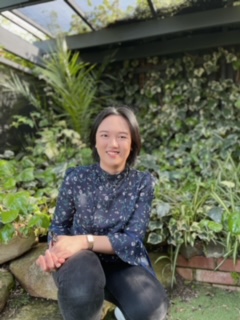
| What is the focus of your PhD? | My research looks into Speech-Language Pathologists' (SLP) knowledge of and experiences with self-regulation. In recent years, there is a growing interest amongst Speech-Language Pathologists (SLPs) in the construct of self-regulation and its potential role in Speech Pathology interventions due to the increased complexity of clientele. There is an increasing number of children with co-occurring challenges such as self-regulation and behaviour needs. Yet, there is little research done in the realm of self-regulation through the lens of a SLP. My research hopes to first gain an understanding of SLPs knowledge of self-regulation and experiences with clients who face self-regulation challenges. On the basis of this knowledge, I will then aim at examining the impact of professional learning based on a specific implementation science framework (Knowledge-to-Action) on SLPs knowledge base and practice. |
| What activity/event are you most looking forward to? | Working with relevant stakeholders (teachers, speech pathologists and other service providers) to gain a more holistic viewpoint of self-regulation. |
Professor Pamphilon co-authors report on training for semi-subsistence farmers in PNG
The CSC’s Professor Barbara Pamphilon has recently co-authored a report with Dr Elizabeth Kopel, a Senior Research Fellow at the National Research Institute of Papua New Guinea (NRI), as part of a promising project that examines the role of soil improvement training for increasing semi-subsistence farming production in the highlands of Papua New Guinea. The project is especially timely in light of the essential role of smallholder farmers in PNG’s food production—they provide 85% of the country’s food. As the majority of these farmers have limited education, often only primary school, understanding the most effective processes for training for these farmers will inform government and non-government agencies working in rural development.
Kopel and Pamphilon’s article, published in the NRI’s Spotlight series, explores the findings of an Australian Centre for International Agricultural Research (ACIAR) funded study which investigated the social and economic impacts of soil improvement training offered to farmers through collaboration between the University of Queensland, the University of Canberra, the PNG National Agricultural Research Institute and a community organisation in Jiwaka: Voice for Change.
The research identified several factors that contributed to farmer learning, application, and transfer of soil management skills. These included the innovative training approach to combine soil improvement methods and the Family Farm Team approach and using readily available soil improvement additions such as certain leaves, coffee waste and animal manure, and harnessing the market potential for one of PNG’s staple foods, sweet potato, for semi-subsistence farmers. Challenges limiting farmer expansion of soil improvement activities included labour, financial and gender-based barriers.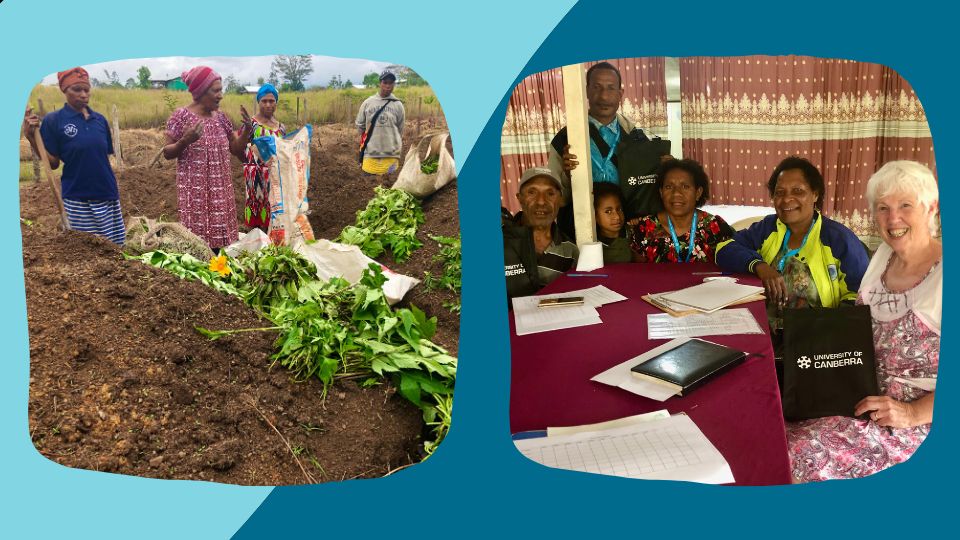
Left: Voice for Change soil peer trainers running field training. Right: Barbara Pamphilon with Voice for Change Family Farm Teams Lead Trainers: Rose Kants, Anthony Gising, Hellen and Paulus Graham.
Professor Pamphilon, who has recently returned from an end line study on the project, also noted:
“Highlands farmers are rightly proud of their long history producing many varieties of sweet potato, but until recently most only grew sweet potato for family consumption and sold some when they needed money. Through the project, many farming families are now planning their food crop production across the year so that they have family food security and regular harvests of sweet potato to sell for other family costs. It was inspiring to see that a number of women farmers had combined this ‘new’ soil improvement knowledge with their own traditional ways of composting.”
The research highlights how improved farmer training is key to the sustainability of farming practices.
Read the full report here.
CSC Spotlight: Kerry Woodward
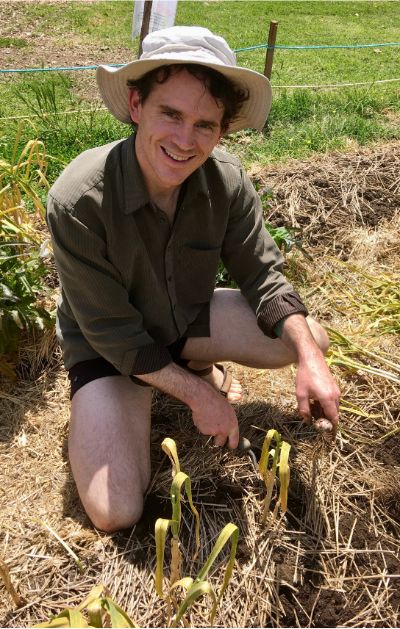
| What is the focus of your PhD? | My PhD explores how care is practised on vegetable farms and what this means for the health and wellbeing of people and planet. |
| What is the best part of your PhD? | Reading and thinking. The PhD journey has been tough going at times, but my perception of what it is to exist and how worlds come into being has fundamentally changed as result of having the time to read and think with philosophy and theory. It is a liberating feeling and I doubt that I would have had the chance to engage with so many ideas on a (reasonably) deep level if I hadn't undertaken a PhD. |
| What activity/event are you most looking forward to? | Submitting my thesis. |
Rural and Regional Education Project: Final Report released
A new report about rural, regional and remote education in NSW conducted in partnerships with UNSW's Gonski Institute, the University of Canberra, and Social Ventures Australia has just been released. The report was funded by the NSW Department of Education.
Access the report here.
CSC members publish new article on 'Country as Teacher' project
The CSC's David Spillman, Monty Nixon and Katharine McKinnon, as well as former CSC member Ben Wilson (now UniSQ), have recently published an article in Curriculum Perspectives about phase two of their school-based Country as Teacher research project. The project focuses on teachers’ learning and experiences through their efforts to enact Country as Teacher curriculum and pedagogy with students in ACT schools.
Read the article here.
Congratulations to the team for this excellent achievement!
Associate Professor Philip Roberts participates in UNESCO INRULED event
UNESCO International Research and Training Centre for Rural Education (UNESCO INRULED) recently organised the Development Consultation Meeting and Editorial Board Workshop for Education and Rural Development. The event brought together a wealth of expertise in rural education and development from across the globe including Australia, Japan and the United States. Among the experts and scholars in attendance included the CSC's own Associate Professor Philip Roberts, who specialises in rural education and curriculum inquiry. Dr Roberts joined the international collaboration which aimed to identify development priorities, expand cooperation network, and mobilise resources for INRULED’s sustainable development.
CSC HDR members at UC Research Festival
The CSC’s HDR members were active participants at this year’s UC Research Festival, a two day event that showcased University’s connection to Canberra and celebrated the impact of some of our successful university-industry partnerships within Canberra and the region.
Monty Nixon, a PhD student and Research Assistant for the CSC’s Country as Teacher project, was one of our most active contributors during the festival. Monty spoke at two sessions during the week, speaking on behalf of his research team about their recently published paper at the Hot off the Press session and about his own work during the HDR Bazaar. Both presentations were centred on the importance of creating more environmentally conscious educational practices through engaging with Indigenous ways of being, knowing and doing.
The Country as Teacher project (the first iteration of which drew to conclusion late last year and is now in a second, expanded body of research) demonstrates the transformative nature of students and teachers having direct experiences learning via ‘Relating with Country’. This educational practice helps foster reciprocity between humans and Country, a way of learning practiced in Australia for thousands of years. Monty’s PhD explores how this approach can be applied in Outdoor and Environmental Education. Both sessions provided opportunities to engage with interesting discussions about the long-term future of the projects, particularly the importance of ‘slow growth’ to ensure the integrity of the work.
CSC HDR members were also inquisitive and supportive audience members at the festival, including at sessions where their peers were presenting their PhD research to academics from across the university. They joined Kerry Woodward, another CSC HDR member, who presented his research on Food networks beyond growth at the Faculty Three Minute Thesis (3MT) heats.
This year’s festival provided an excellent opportunity to hear about the work across the university, building relationships and sharing discussions about future collaborations. Our HDR students welcomed the chance to present in a welcoming environment and build confidence in future conferences.
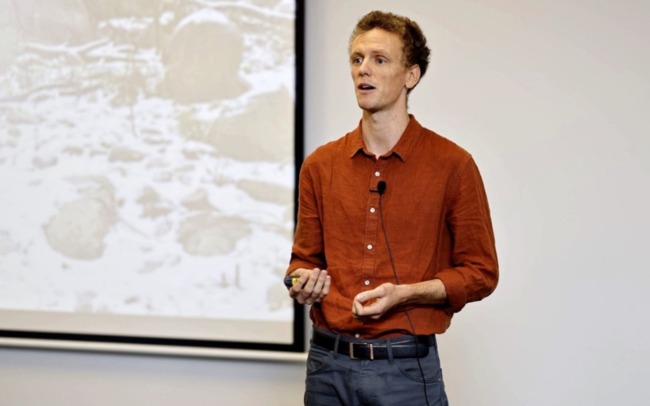
Monty Nixon
Associate Professor Philip Roberts comments on regional school closures
The loss of local schools in regional communities is a growing problem. In a recent report published in the Canberra Times, the CSC's Associate Professor Philip Roberts provided the following comments:
"The way that schools are staffed and funded are based around an economic formula model and those formulas really don't work when you get into a lot of regional areas," Dr Roberts noted.
Click here for Dr Roberts' full statement and the comprehensive report.
Shared workloads improve lives in Solomon Islands
The Family Farm Teams (FFT) program supports semi-subsistence farming families in the Pacific to develop sustainable livelihoods. A recent report, published on the ACIAR blog, highlights some of the impacts the program is having in the Solomon Islands. As Solomon Islander farmer Mrs Florence Volea expressed:
‘I am very thankful for this project. All my life we have lived on a hand-to-mouth basis, with no concrete plans for our future, and today I am proud to be a farmer with my husband, and I can manage and save money. Our lives have greatly improved.'
The CSC's Professor Barbara Pamphilon led the development of FFT (PNG), while Associate Professor Deborah Hill leads the ACIAR-supported project in the Solomon Islands.
Read the full report here.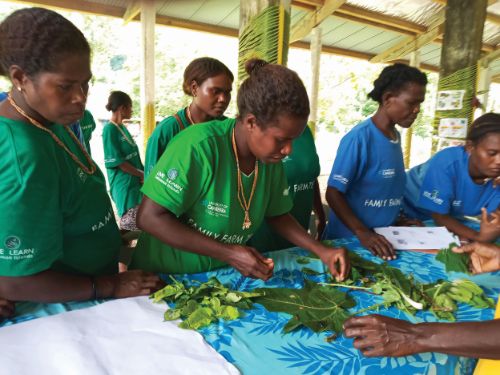
CSC Spotlight: David Spillman
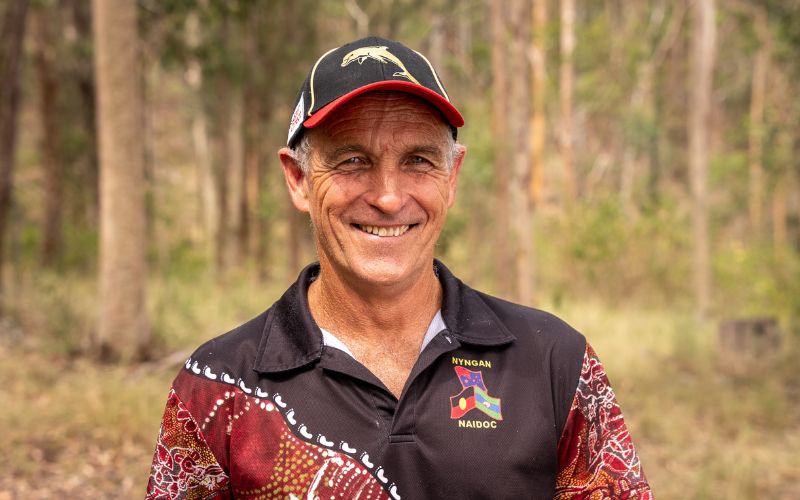
| What are you currently working on? | Following my path and my cultural obligations, my life's 'work' focuses on enacting Country as Teacher pedagogies in schools and tertiary institutions. At the moment it's about undergrad teaching and learning, Country as Teacher (Affiliated Schools Research Project) with six ACT schools and getting the Graduate Certificate Country as Teacher up and running. |
| How does your work promote diverse ways of knowing, being and doing in education? | For the majority of time humans have lived with this land we now call Australia, the primary teachers of children and adults have been Earthkin and Country (not humans). These teaching and learning processes enable a diverse array of ways of knowing, being and doing - ancestral (inter-generational), intuitive, spiritual, instinctual, kinesthetic, empathetic / compassionate, inquiry-driven, as well as rational / analytical. |
| What work activity/event are you most looking forward to? | Getting started on the Graduate Certificate Country as Teacher course. This offering will open up a whole new realm of opportunities for Country as Teacher pedagogies in school and tertiary education. |
Watch: Spatial Justice & Education: Knowledge, equity and community sustainability (Dr Philip Roberts, Education Public Lecture, UC Research Festival)
This lecture advances an understanding of how school-based knowledge can conflict with the knowledges of rural communities, and how to develop approaches to bridge this divide. Drawing upon several recently published papers and other emerging findings from an ongoing four-year research project on Spatial Justice the presentation aims to develop a shared language for talking about social justice for rural-regional community sustainability. Through highlighting the spatial dimensions of social justice and the implications for recognising different knowledges and carers this lecture outlines a road map to achieving more inclusive educational practices and valuing the specialist knowledge of teachers in these communities. 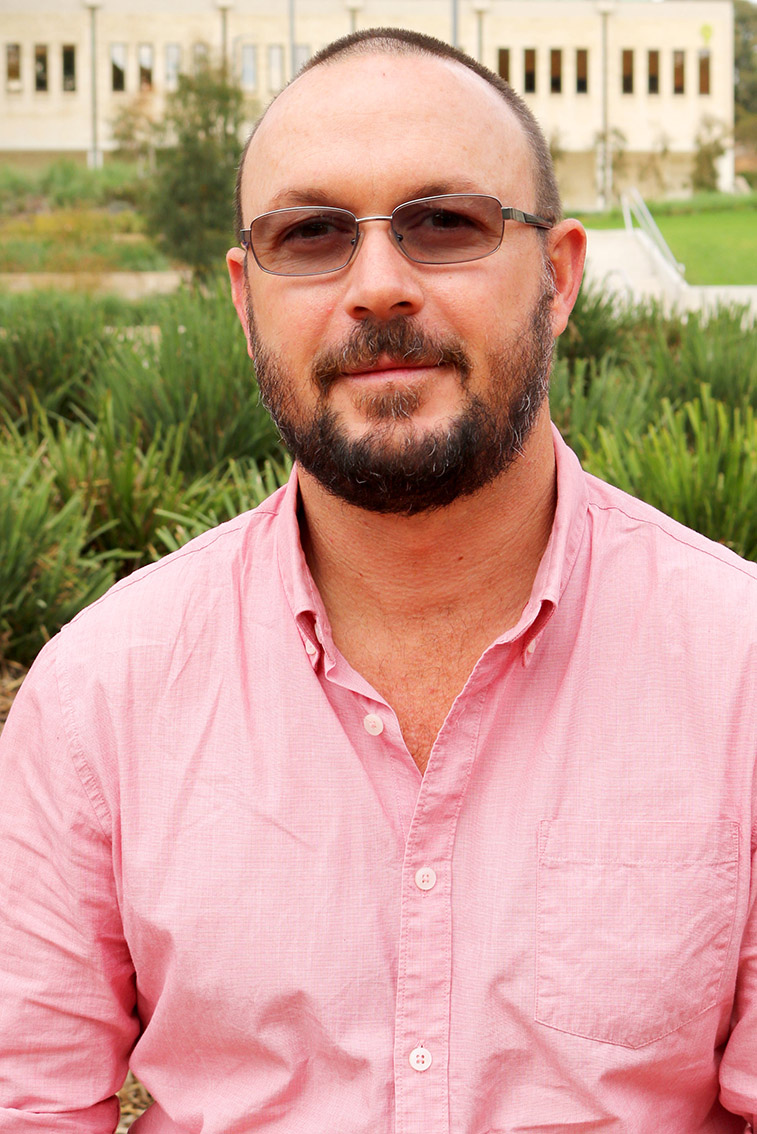
Dr Philip Roberts is an Associate Professor specialising in rural education and curriculum inquiry. Philip’s major ongoing research interest is how teachers situate the curriculum in the communities they serve and how spatial theories are incorporated into educational thinking .
CSC members at UC Research Festival
The University of Canberra Research Festival is only a few days away, so make sure you register soon.
Several CSC members are participating at this year’s festival.
We have Associate Professor Philip Roberts public lecture, which advances an understanding of how school-based knowledge can conflict with the knowledges of rural communities, and how to develop approaches to bridge this divide.
Jenny Dean and Monty Nixon will also participate in Hot off the Press, which showcases the very latest research coming out of UC. Jenny’s research on socioeducational disadvantage emphasises that reforms should focus on reducing educational inequalities and contributing to social and economic sustainability. Monty will present on the Country as Teacher Project, which is a formative exploration of how Indigenous pedagogies might be taken-up as part of mainstream schooling for all Australian students.
Our HDR students are also especially active at this year’s festival. In addition to his involvement in the Hot off the Press event, we’re looking forward to learning more about Monty Nixon’s research at the HDR Bizarre. The HDR Bizarre is an exciting conference-style event that showcases the diversity of UC HDR research projects. It brings together the UC research community with industry partners by hosting a series of presentations, panel discussions, workshops and networking opportunities.
You will also see CSC student representation at the Three Minute Thesis Competition. It's not easy to condense your research into a snippet, but CSC PhD candidates are tough. We're excited to announce that Kerry Woodward, whose research explores food networks beyond growth, will participate in the Faculty of Education heats of the Three Minute Thesis Competition. Go Kerry!
Watch Dr Philip Roberts' UOM Public Lecture: Spatial Justice, rural schooling and the sustainability of rural communities
In March, Associate Professor Philip Roberts gave a public lecture entitled Spatial Justice, rural schooling and the sustainability of rural communities. The seminar, which was hosted by the University of Melbourne’s Department of Rural Health, provided a glimpse into Philip's DECREA research project, which critically examines knowledge production and disadvantage among rural, regional, and remote (RRR) students and their communities through a Spatial Justice perspective.
CSC Spotlight: Rohan Nethsinghe
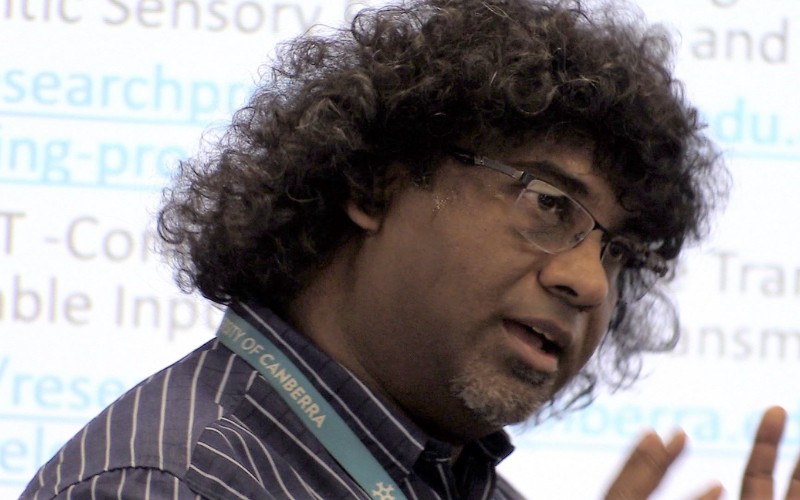
| What are you currently working on? | I am currently working on an Arts Integration project with Dr. Amanda Edwards. This is to explore how arts are integrated (e.g. STEAM) in educational curricular contexts, and how arts are used in industry settings (e.g. Canberra Theatre Centre and Questacon) for educational purposes and other reasons. |
| What are you especially interested in/passionate about? | Research: Creative Arts; Creative Arts Education; Performing Arts; Music and Music Education; Arts Integration; Aesthetic pedagogies; Arts Assessment; Multi/Cross/Inter |
| How does your work promote diverse ways of knowing, being and doing in education? | My work in the Arts promotes knowing through the Arts (Music, Dance; Visual Arts; Media Arts and Drama). For example, Arts integration strategies introduced through a series of publications since 2017 are widely used in multicultural educational settings. In this longitudinal collaborative project Spain, USA and Australia are the participating countries and we have now extended it by adding China, India and Sri Lanka. My work also includes ways of knowing for people from diverse backgrounds (e.g. multicultural communities and people with different abilities). In summary building intercultural competencies and twenty first century skills through the Arts, Arts Education and Arts research. |
| What work activity/event are you most looking forward to? | Teaching STEAM, engaging in interdisciplinary research with Industry (STEAM) and organising public events to promote Arts. I also look forward to use modern multi model research dissemination methods and have produced a narrated research video documentary about a Sri Lankan traditional drum called Gataberaya which was presented the 2023 symposium of the International Council for Traditional Music. |
Associate Professor Philip Roberts to give public lecture at UC Research Festival
We are excited to announce that the CSC’s Associate Professor Philip Roberts is giving a public lecture at the upcoming UC Research Festival. The lecture advances an understanding of how school-based knowledge can conflict with the knowledges of rural communities, and how to develop approaches to bridge this divide. Event and registration details are below.
Wednesday, June 7, 2023
University of Canberra | Inspire Centre, TEAL Room Light canapés and drinks from 5:30pm followed by the lecture from 6:00 PM - 7:30 PM.
CSC Spotlight: Jo Caffery
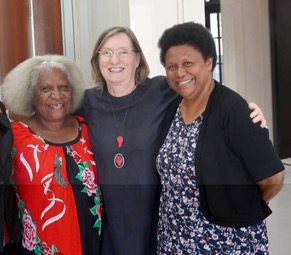
Dr Jo Caffery, Prof Lalen Simeon
| What are you currently working on? | I am currently leading a PNG-based research project to improve women and youth engagement in agriculture. The project is in its final year, so we are currently evaluating its impact on youth and families in agricultural communities and in religious institutions across PNG. More information about our project is available here: Gender and Youth in Agriculture website |
| What are you especially interested in/passionate about? | I'm especially passionate about working with people of all ages, genders, languages, and cultures in rural and remote indigenous communities to help build sustainable future pathways in a linguistically and culturally appropriate way. |
| How does your work promote diverse ways of knowing, being and doing in education? | Our PNG-based research project supports people to work closely as a family to help build gender equality, explore sustainable futures for their farms and for their male and female youth. It has a strong focus on working with people in their own language and in their own culture. We work with families and extended families to provide them with skills that they can utilise in all areas of their family and family farm, rather than doing the work for them. |
| What work activity/event are you most looking forward to? | The project activity I am most looking forward to is happening early next year, when the people who have been instrumental to this project share their experiences. We will be holding dissemination conferences to inform policy makers, institutions, male and female farmers, as well as male and female youth across Papua New Guinea about our participants’ achievements and to show that others can achieve similar outcomes. This is an exciting part of the project. It hopefully will impact policy to improve the lives of subsistence farmers in the future. Nevertheless, our evaluations already demonstrate the influence and success of the program, insofar as people are using our approach and making it theirs by adapting it in a way that is best for them. By doing this, communities are scaling the project themselves and continue to make a difference in other people’s lives, particularly supporting outcomes for women and youth. |
New Family Farm Teams resources for the Solomon Islands
May
The Centre for Sustainable Communities is proud to announce the release of two new publications in the Family Farm Teams Program (FFT) series, a growing suite of resources for FFT trainers and facilitators. These downloadable resources have been designed specifically for communities undertaking the FFT program in the Solomon Islands.
The first resource, Solomon Islands Family Farm Teams Manual, draws on the PNG Family Farm Teams Manual published in 2017, adapted to the Solomon Islands context based on research and training undertaken in Longgu district, North-east Guadalcanal. The second resource, Solomon Islands Family Farm Teams Evaluation Pack, assists trainers and facilitators in the evaluation of programs and activities. Both resources were developed for the Solomon Islands Family Farms Teams Project, Improving agricultural development opportunities for female stallholders in rural Solomon Islands, funded by ACIAR (Australian Centre for International Agricultural Research). The resources were developed by the CSC's Associate Professor Deborah Hill, Professor Barbara Pamphilon and Dr Navid Sabet, in partnership with Live & Learn Environmental Education (Solomon Islands).
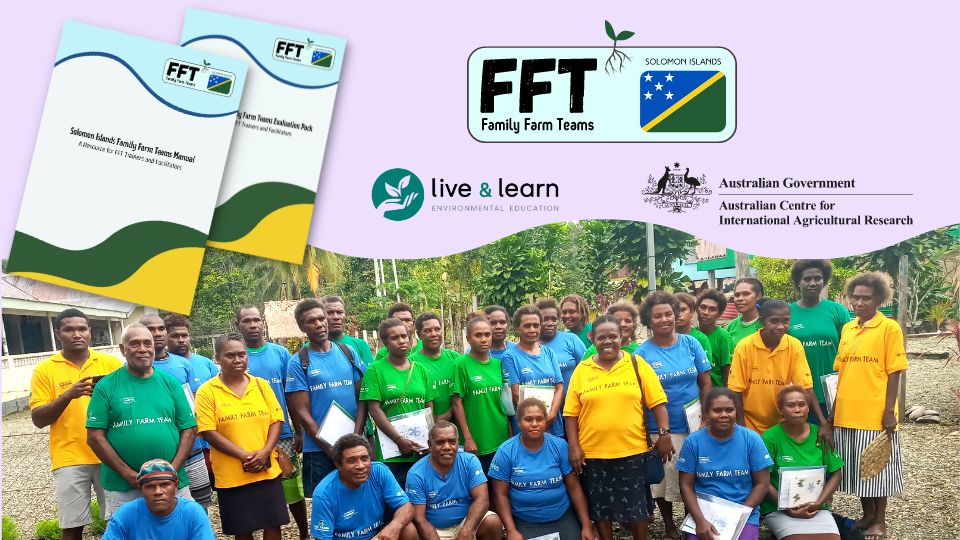
CSC Spotlight: Bernard Brown
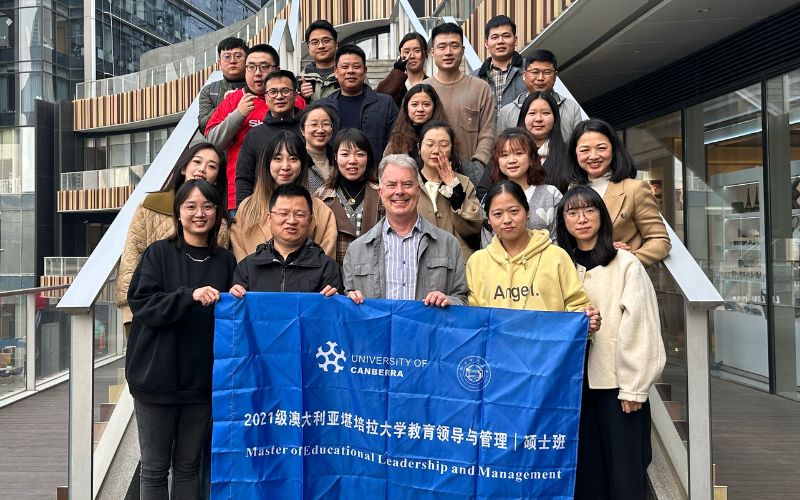
| What are you currently working on? | I am working on a UC Affiliated Schools project as the lead researcher, focussing on empowering leadership in local schools. The co-researcher is Professor Moosung Lee. I am also working on an international collaboration project with a German academic, Professor Rita Nikolai, examining private school education systems and funding in Germany and Australia. |
| What are you especially interested in/passionate about? | I am interested in furthering my engagement with international comparative research focused on education policy and leadership. Also, building on more cross disciplinary knowledge which I am trying to integrate into my research approaches. My research interests are also extending to Latin America and potential work with several universities over there. |
| How does your work promote diverse ways of knowing, being and doing in education? | Through my research activities with schools and focus on school systems, my work highlights the ways in which school communities can be better understood and empowered in particular contexts. The findings of my research also inform my teaching in the areas of education policy and leadership both in Australia and internationally. |
| What work activity/event are you most looking forward to? | I have trips to China, Colombia and Mexico coming up between May and August, which present great opportunities for me to further my teaching and research work in international contexts. The above photo is from my recent teaching work in Hangzhou China as part of the Faculty of Education's Master of Educational Leadership and Management degree. |
Professor McKinnon contributes to the ANU Maternal Health Series: Birthing Work and the neglected aspect of maternity care
April
Professor McKinnon (CSC Director) recently gave a talk as part of the ANU Maternal Health Series, which explores the impact of maternity on women’s wellbeing and the transition to parenting. Watch a recording of the event below.
CSC Spotlight: Sandra Heaney-Mustafa

| What are you currently working on? | I am working on a research project Adapting to Salinity in the Southern Indus Basin (ASSIB) Pakistan funded by ACIAR. I am currently working with a CSU team to seek funded extension due to COVID and climate disaster in Pakistan delaying activities. I am also marking a doctoral thesis form University of Sargodha, Pakistan on the training needs of agricultural extension staff. |
| What are you especially interested in/passionate about? | I am especially interested in facilitating farming families to engage in decision making and policy formation in matters that concern them utilising the Rural Research Engagement and Learning Model (REALM). |
| How does your work promote diverse ways of knowing, being and doing in education? | Through the use of a variety of research methods including Critical Institution Analysis, Stories of Change and using collaborative problem solving and discovery learning contained in REALM, the project has helped women engage in vegetable production, farmers adapt to the use of saline tolerant seed varieties and some move from agriculture to aquaculture to generate and improve livelihood |
| What work activity/event are you most looking forward to? | The National Salinity workshop in Pakistan in the final stage of the ASSIB project at which we hope to influence policy makers and future donors to carry on the work the project has only just begun. |
After success in PNG, the Family Farm Teams Program is trialled in the Solomon Islands
March
The CSC’s Family Farm Teams (FFT) program, after achieving strong outcomes in PNG, is now being trialled in the Longgu community of the Solomon Islands.
The Program supports semi-subsistence farming families to develop sustainable livelihoods. Building on both individual and family agricultural and cultural strengths, FFT aims to enable families to work in an equitable and effective way to develop their family farm.
The Project Leader of the initiative in the Solomon Islands is the CSC’s Associate Professor Deborah Hill, who noted in a recently published article:
“The popularity of FFT training comes from learning that it is both improving livelihoods for farming families and addressing gender inequalities. It is also flexible enough to be applied across diverse crops, commodities, and communities.”
The Program operates in partnership with Live and Learn Environmental Education and Kastom Gaden Association. Funding has been provided by the ACIAR, who have recently published an article on the project which explains some of the activities used, the unique characteristics of the Longgu community, as well as the impact of the Program on participants' everyday lives.
Read the full report here.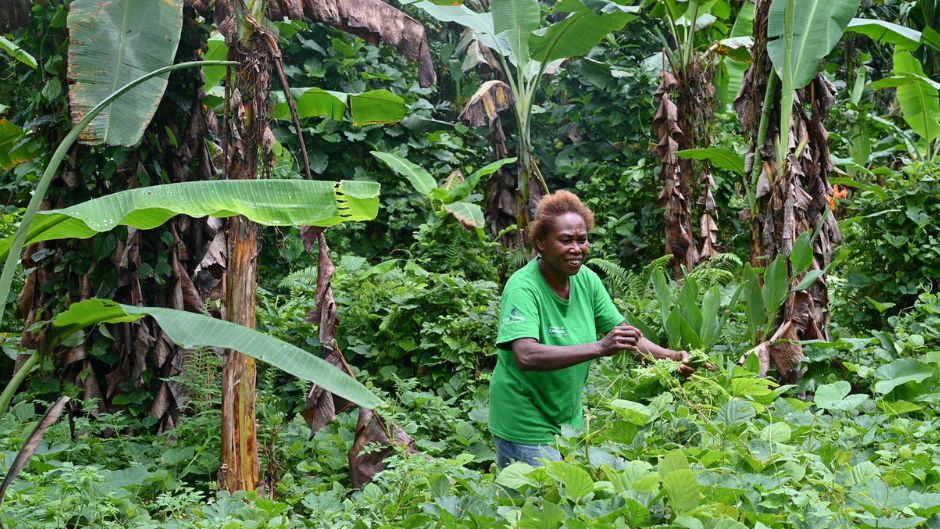
FFT Village Community Educator, Florence Veloa, harvesting before market day
Copyright: ACIAR
Watch: Visiting Scholars Research Showcase
In February our four international visiting scholars discussed how their work about self-regulated learning, health and physical education, and rural education supports education for sustainable communities. Watch their presentations in the video below.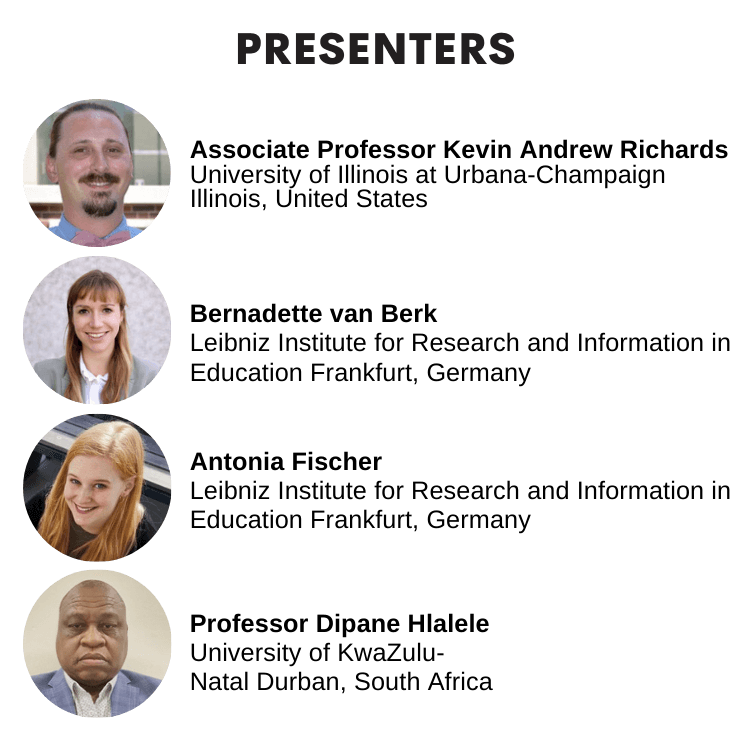
Knowledge & Rurality: Deconstructing Geographic Narcissism in Education (upcoming symposium)
March
Hosted by the Rural Education, Curriculum and Communities Research Group.
Symposium Overview
This symposium examines the traditional questions of curriculum inquiry from the perspective of the rural – what and whose knowledge is of most worth? By doing so we interrogate the assumptions about rural education disadvantage. We also highlight the role rural knowledges may have in challenging these educational deficits in the interests of rural community futures.
Presentations
Dr Jenny Dean
The spatial implications of academic achievement in Year 12: Rethinking discourses of disadvantage in rural locations
Ms Natalie Downes
In space no-one can hear you scream: The absence of rurality in Australian Education Research
Professor Mike Corbett
Visiting Scholar, Acadia University, Canada
Place-Based Education: A Critical Appraisal from a Rural Perspective
Associate Professor Philip Roberts
Knowledge beyond the Metropole: Curriculum, Rurality and the Global South
Details
Time: 22nd March 4pm-5:30pm
Afternoon tea included
Location: University of Canberra, 2B07
RSVP: 17th March
RSVP LINK
CSC's Dr Ben Wilson receives Neville Bonner Award for Indigenous Teaching
March
Associate Professor Ben Wilson recently received a national honour for Indigenous teaching at the 2022 Australian Awards for University Teaching. The Neville Bonner Award for Indigenous Teaching celebrates outstanding teachers who have demonstrated excellence, leadership, and commitment to teaching and learning in the area of Indigenous education.
The award recognises the passion and commitment that Associate Professor Wilson brings to his teaching, and the innovative approaches that he employs in embedding Indigenous ways of knowing, being and doing into the UC curriculum.
Pro Vice-Chancellor Academic, Professor Geoff Crisp, acknowledged the profound impact of Associate Professor Wilson’s work, both in the Faculty of Education and University-wide.
“Since joining us in 2019, Ben has made an enormous contribution to the life and culture of UC. He is a respected leader in his field, and he has played a fundamental role in transforming UC’s approach to the Indigenisation of the curriculum, especially in relation to Education,” Professor Crisp said.
Read the full media release here.
The CSC congratulates Ben on this outstanding and inspiring achievement!
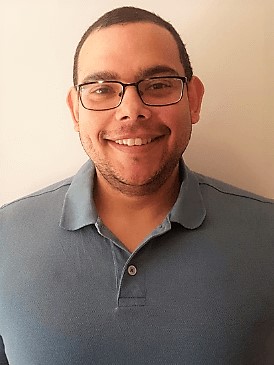
Spatial Justice, rural schooling and the sustainability of rural communities: CSC’s Dr Philip Roberts to deliver UOM public lecture (Mar 14, 530pm)
March
Associate Professor Philip Roberts will soon deliver a public lecture (online) hosted by the University of Melbourne’s Department of Rural Health. The seminar will share findings from the DECRA project Engaging rural knowledges for sustainable futures: spatial justice and rural schooling, which critically examines knowledge production and disadvantage among rural, regional, and remote (RRR) students and their communities through a Spatial Justice perspective.
Spatial Justice extends traditional notions of equity and justice to include the spatial dimension. This goes beyond the distribution of resources or the inclusion of diverse perspectives to include how (in)equity and (in)justice are produced through space. Of particular concern here is the question of how knowledge of rural communities is recognised and engaged with in the professions. These knowledges typically pertain to the unique characteristics of rural communities and how they engage with , and understand , the space around them. Rural students typically enter school with knowledges and experiences that are different from their urban peers. However, they are forced to interact with a school system that values the latter over the former, which further contributes to disadvantage and makes rural students feel less than their peers. The usual response in education is to try to overcome this presumed 'gap' in knowledge by filling them up with more knowledge of elsewhere, rather than using their pre-existing knowledge as a viable and valuable alternative.
Event date/time: Mar 14, 530pm
Booking are essential for this free (online) public lecture. Click here to register.
Associate Professor Philip Roberts
Women and Young People’s Influence in Indonesian Farming Communities: Professor Pamphilon Asked for Comment
March
Professor Barbara Pamphilon recently provided expert insight for a SciDev.Net article on women and young people’s influence in rural Indonesian farming communities. Reporting on research in Agriculture and Human Values, the article noted that despite not occupying the formal leadership positions more commonly associated with older men, women and young farmers had significant influence on farming practices through informal networks and less recognised forms of labour. Despite different forms of participation, Professor Pamphilon emphasised that the study signalled that rural development projects need to recognise the different spheres of influence of men and women. She noted that it is important to challenge potentially outdated assumptions about farming practices and utilise the insights of women and young farmers as well as men’s as together they offer the greater potential for positive and sustainable change.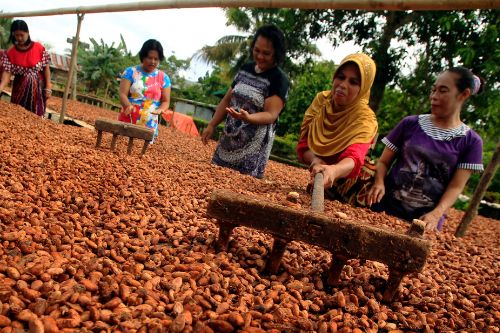
Women cocoa farmers in South and Southeast Sulawesi.
Copyright: World Agroforestry Centre/Yusuf Ahmad. (CC BY-NC-SA 4.0).
This image has been cropped.
Professor Ting Wang seeks a more nuanced understanding of gender and educational leadership
February
CSC member Professor Ting Wang has recently co-authored an article with Siyao Gao from National University of Singapore on the topic of women and educational leadership knowledge production. With a particular focus on Mainland China, Hong Kong and Taiwan, the systematic review identified several prominent themes including obstacles for women's career progression; the underrepresentation of women leaders in educational institutions; the impact of social-cultural contexts on gender-related leadership; gender stereotypes and dynamics; gender-based variation in leadership behaviours; and gender equity legislation and policies. The research furthers our understanding of colonial and Eurocentric legacies in the field of educational leadership, highlighting the situatedness of leadership including cultural, organisational, and structural factors. The research also emphasises the ongoing challenges faced by women in the field of educational leadership, and advocates for more effective policies and procedures to promote empowerment and equality.
The CSC congratulates Professor Wang for this important research!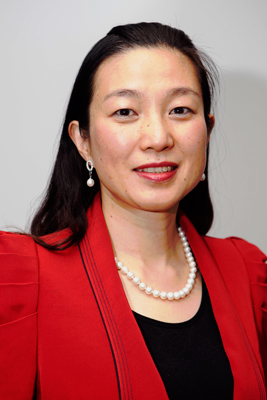
Visiting Scholars Research Showcase
22nd February
University of Canberra | Room 7B13 Lunch at 12:30pm followed by a hybrid seminar from 1:00pm-2:30pm.
Join us for the first seminar of the year where four international visiting scholars discuss how their work about self-regulated learning, health and physical education, and rural education supports education for sustainable communities.
Please RSVP for lunch and the on-campus event to CSC-admin@canberra.edu.au.
Please register for the online seminar here.
Download the event flyer here.
PRESENTERS:
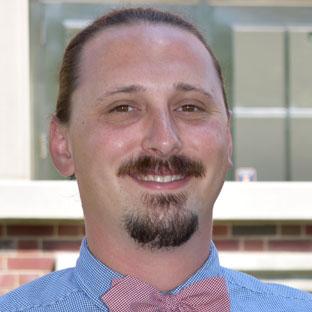 | Kevin Andrew RichardsUniversity of Illinois at Urbana-Champaign |
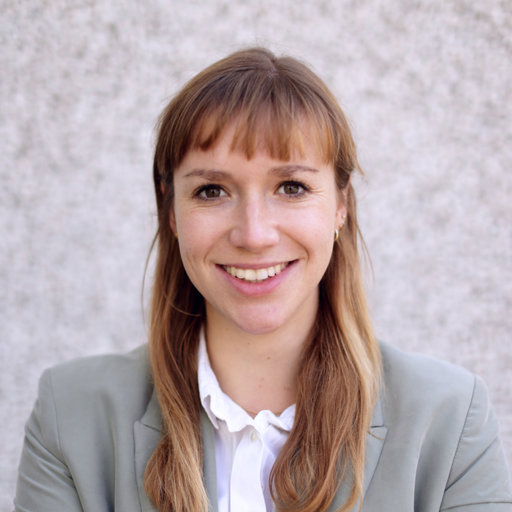 | Bernadette van BerkLeibniz Institute for Research and Information in Education |
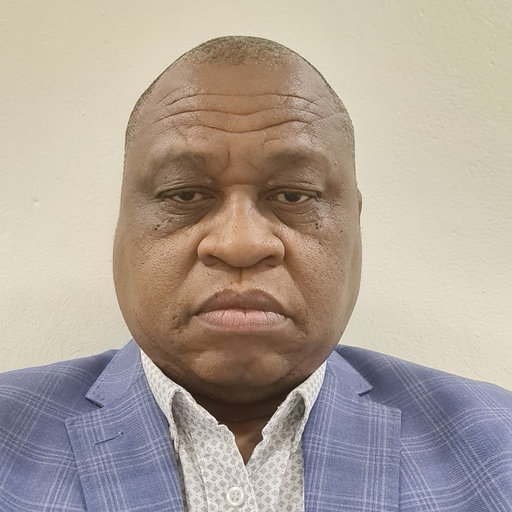 | Dipane HlaleleUniversity of KwaZulu-Natal |
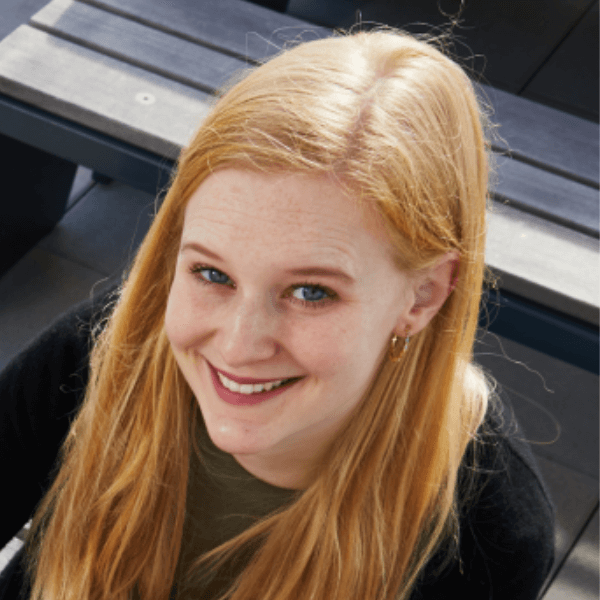 | Antonia FischerLeibniz Institute for Research and Information in Education |
Country as Teacher: End of project symposium and publications
February
The Country as Teacher Project is a formative exploration of how Indigenous pedagogies might be taken-up as part of mainstream schooling for all Australian students.
The project, funded by the Affiliated Schools Research Network, has worked with 26 teachers across four ACT schools over the past two years. This first iteration of the project is drawing to a close with the research team: David Spillman, Ben Wilson, Katharine McKinnon and Monty Nixon, recently publishing their emerging findings in Curriculum Perspectives under the title Reinvigorating Country as Teacher: beginning with school teachers' direct experiences, ‘relating with Country’. Through thematically weaving together participants' experiences, the article demonstrates both teachers’ capacity to build and the transformative nature of a ‘relating with Country’ practice. The article outlines the transformative nature of relating with Country, resulting in participants growing gratitude for and learning about, from and how to care for Country.
To celebrate the project and share the emerging findings, the CSC helped host an end of project symposium which brought together keynote speakers, guest stakeholders from the Department of Education, educators from across schools and the University. The symposium was an opportunity to share knowledge and build strong relationships, growing the community of research. The research team is hopeful this community will help foster the growth of the Country as Teacher approach in future projects.
CSC welcomes four international scholars!
February
The Centre for Sustainable Communities welcomes the arrival of four international scholars in February! With extensive experience and expertise across diverse areas including physical education, rural education, self-regulation in learning among many others, the CSC looks forward to learning from and working collaboratively with these accomplished academics.
 | Kevin Andrew RichardsKevin Andrew Richards is an Associate Professor of Physical Education at the University of Illinois at Urbana-Champaign. Previously, he worked at the University of Alabama and Northern Illinois University after completing a PhD and post-doctoral study at Purdue University. In his current position at Illinois, Richards teaches undergraduate and graduate coursework, and is engaged in doctoral student supervision and mentoring. Richards’ scholarship focuses on the recruitment, education, and ongoing socialization of physical education teachers. He also coordinates and conducts research on physical activity programs that seek to promote social and emotional learning, primarily through the teaching of the personal and social responsibility model. His work has been published and presented internationally, and he is currently serving as the incoming editor for the Journal of Teaching in Physical Education. |
 | Bernadette van BerkBernadette van Berk is an educational researcher at DIPF | Leibniz Institute for educational research and information in Frankfurt, Germany. She is currently engaged in research on self-regulated learning of primary school students. Her research investigates what abilities or contextual variables are related to self-regulation in learning (SRL) and how this important capacity can be fostered most effectively. In addition to research on SRL, she is also interested in mental disorders and learning difficulties of children and is therefore undergoing a training program to become a child and adolescent psychotherapist. In her PhD project PuS-SeL (Problem solving and Strategies - Self-regulation in Learning), supervised by Dr. Charlotte Dignath, she investigates the self-regulation ability of young learners by using multiple methods as interviews, tests, questionnaires and think-aloud tasks. Besides students, parents and teachers are also included in her research. In her current study Bernadette is investigating the effects of child-friendly explanatory videos and learning journals to promote self-regulated learning of young learners. |
 | Dipane HlaleleDipane Hlalele is a Professor of Education at the University of KwaZulu-Natal (South Africa) and a C2 NRF rated researcher (2022-2027) who appears in the World Top 100 Education Scientists in South Africa, 2022 (AD Scientific Index). Prior to joining UKZN as an associate professor in 2017, he was an assistant dean and senior lecturer at the UFS, a college of education lecturer and a high school deputy principal and teacher. He was a principal- and co-investigator in the Community engagement in rural contexts: a relational leadership strategy (2017-2019); Sustainable urban-rural learning connections (2017-2018) National Research Foundation (NRF)-funded projects respectively. Prior to this, he was a principal investigator in Sustainable rural learning ecologies, Sustainable Futures for the People of the Afromontane and a co-investigator in the Adaptive leadership in community engagement and service learning NRF funded projects respectively. The accrued value of these projects is R2.7 million. His current research interest draws from positive and community psychology as well as education and he therefore strive for and advocates helpful, hopeful and respectful research. He currently sits on the editorial boards of the Journal of Education (JoE), Journal of Educational Studies (JES) as well as the Australian and International Journal of Rural Education (AIJRE). He is currently Ethics Chair: Human and Social Sciences Research Ethics Committee at UKZN. He also served as Maluti TVET college council chairperson, President of the Education Association of South Africa, a member of national teams that developed the rural education policy as well as inclusive teaching standards for beginner teachers. |
 | Antonia FischerAntonia Fischer is a German psychologist and educational researcher. After completing her master’s degree in Cognitive Psychology, Learning and Work at the University of Freiburg, she is currently pursuing her PhD in psychology in the field of promotion of Self-Regulated Learning (SRL). Antonia is especially interested in how SRL is promoted in different countries and cultures and will visit Australia in the beginning of 2023 to look into similarities and differences of teachers’ SRL promotion in both countries. Her PhD topic is the promotion of self-regulated learning. More specifically, she is interested in how teachers in lower grades (first through eighth grade) promote their students’ SRL directly by promoting learning strategies as well as indirectly by creating learning environments that help students use self-regulated learning strategies. Two studies have been conducted so far. In the first one, we developed an in-depth interview that assesses teachers’ SRL promotion which we then used for conducting phone interviews with teachers. In addition, teachers filled out online questionnaires on their own SRL usage, their SRL knowledge, their school’s SRL support and ICT knowledge and infrastructure. In the second study, we are currently investigating whether (student) teachers’ SRL usage can be fostered by short modeling videos and how these videos should be designed to best promote participants’ SRL. Antonia’s PhD is supervised by Dr. Charlotte Dignath. |
CSC researcher supporting families at the start of the school year
January
Associate Professor Deborah Pino-Pasternak participated in a radio interview for Canberracast iHeart Radio on Monday 30.01.2023. The purpose of the interview was to discuss how adults can support children to manage nervous feelings as they start school, as well as supporting adults in managing their own anxieties.
As children commence their school years, a number of them face anxiety in preparation for the first day. Dr Deborah Pino-Pasternak is an expert in children’s development of self-regulation, a set of skills that allow individuals to become self-aware of and manage their behaviours, emotions, and ways of learning. This skill set grows dramatically in the early years and is responsive to adult support. Given that a significant number of families have faced two or three years of disruptions in school journeys associated with the global pandemic, it is critical to support them to effectively identify emotional triggers, as well as use strategies to understand, accept and process emotions in healthy ways.
In the interview (available below), Dr Pino-Pasternak emphasised the importance of routines and predictability to minimise sources of anxiety in children and families as they prepare for school. “Visiting the school grounds in advance, getting to know the teachers in advance if possible, preparing backpacks and lunchboxes, and having visual organisers (for example, a schedule on the fridge) can help reduce anxiety,” Dr Pino-Pasternak said. Dr Pino-Pasternak also emphasised the importance of ongoing and positive communication between adults and teachers. As Dr Pino-Pasternak explained: “the more families trust their teachers, the safer children will feel in the classroom.”

Photo credit: Deleece Cook on Unsplash
CSC and Communities Economies 2022 Collaborations
November
The 2022 Community Economies annual online conference was run in early November. The conference drew together individuals from across the international Community Economies Research Network (CERN). CERN is concerned with collaboratively building research and practice that bring about more sustainable and equitable forms of development by cultivating and acting on new ways of thinking about economies and politics. The conference, titled Liviana, is a series of events that are based on the sense of openness, free-floating train of thought, and cheerful spirit that the Spanish term connotes.
This year CSC members Dr Ann Hill and Shang Fuentes played a role in leading trains of thought in several sessions. Dr Hill helped facilitated an event celebrating and recognising the value of grassroots models of learning for more sustainable futures. HDR student Shang Fuentes also shared her key learnings from the Communities Economies summer school in discussion with her peers in one session and reflected on the question of scaling up communities’ economies in another. Both also spoke at the Community Economies Current Research in Asia session where they discussed their recent book chapter Asset-based Community Development in diverse social cultural contexts focusing on its application in Fuentes' PhD research.
Congratulations to everyone involved in the organising and running of the CERN events! To find out more about CERN, or watch previous Liviana sessions follow this link.
Dare to be Curious Faculty of Education November 2022 Conference
November
In November the Faculty of Education held its annual conference. This year’s conference theme ‘Dare to be Curious: Finding value in research’ embedded the new University of Canberra’s values.
Across the two days several Centre for Sustainable Community members presented their research work. On the first morning Associate Professor Deborah Pino-Pasternack reflected on self-regulation for families’ and early childhood educators and Dr Jenny Dean discussed inequities in access to, and achievement in, the NSW senior secondary curriculum.
On the second day Natalie Downes discussed the ongoing issue of underrepresentation of rural students at universities and the importance of ensuring considered inclusion of rural knowledges in coursework and support services. The final CSC member to present was Dr Bernard Brown who spoke about the entanglement of policies, schools, teachers, and the Covid-19 crisis.
Congratulations to everyone involved in the conference and the Faculty of Education for putting together such a successful advent full of shared learning!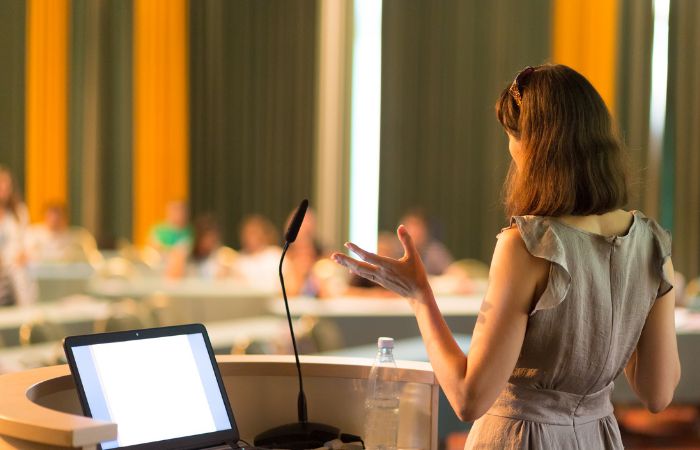
New CSC Monograph: Re-framing the role of ‘Youth’ with a strengths-based approach
October
The October CSC monograph explores the role that youth can play in low- and middle-income countries in significantly contributing to world-wide food and nutrition security, using the example of Papua New Guinea (PNG). The recent volume, co-authored by Pamphilon, Caffery and Perry, is written for development practitioners interested in understanding, harnessing and developing the strengths of youth living in agricultural settings.
The monograph problematises current framings of youth in development literature as ‘risks’ or ‘problems’. Drawing on PNG data, the authors show how a strengths-based approach can inform program design and highlight that talking, listening and learning from young people themselves is vital to building effective strengths-based approaches.
Read the full monograph here.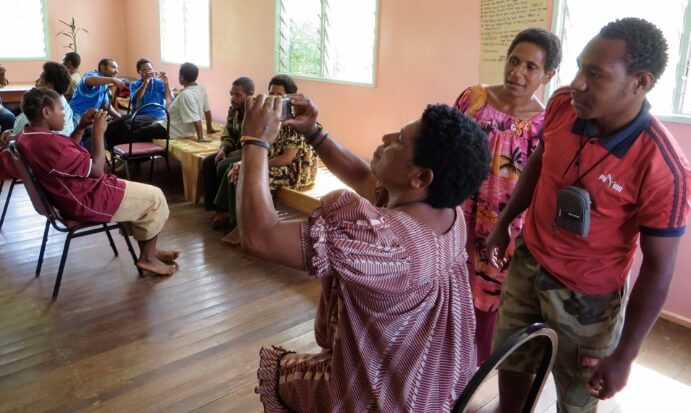
New Book Release: Maria’s Family Plans for a New Baby
October
In October 2022, the Centre for Sustainable Communities (CSC) is celebrating the release of a new Maria Book, co-authored by CSC staff member Barbara Pamphilon and Kym Simoncini. The Maria books are an ongoing series produced for schools and families in rural Papua New Guinea (PNG), initially developed in an Australian Centre for International Agricultural Research (ACIAR) research project examining the lives of women semi-subsistence farmers in PNG. The research revealed the aspirations of women to read and write as well as further supporting their own children’s learning and provided the impetus for the books.
The Maria books are designed to be dual-language, illustrative and culturally relevant so they reflected the lives of both adults and children reading them. While each book carries a specific message, such as marketing, budgeting, or agricultural practices, they also address gender inequalities in families, a key theme of research for the initial and subsequent projects that focus on building ‘Family Farm Teams’.
The two initial Maria Books were enthusiastically received creating ongoing demand for more. The latest, recently published sixth addition, highlights the critical importance of healthy eating during pregnancy and the first two years of a child’s life in order to address the significant stunting issues in PNG. Congratulations to all involved!
Click here to find out more about the Maria Books.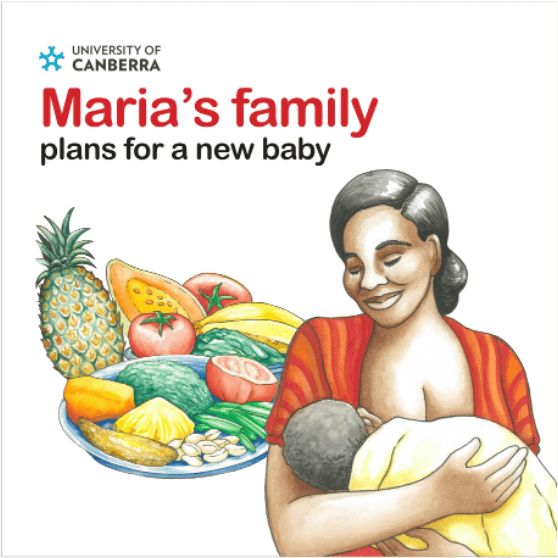
Opportunities to think about school education during the Covid chaos
October
Covid-19 has caused enormous and numerous challenges in multiple areas, from health and education to employment. The CSC’s Dr. Bernard Brown has taken a particular interest in the impacts of the Covid-19 crisis on schools and the ways in which school leaders have responded.
Bernard has led two projects that provide useful insights into educational leadership during times of crisis:
The first project, funded by the UC Affiliated Schools Research Program, uses a mixed-methods approach designed to examine, develop, and empower school leadership capacity in the context of the Covid-19 pandemic.
The second project, funded by UC’s Early Career Academic Research Development (ECARD) Program, investigates the crisis leadership experiences of school leaders and senior administrators.
Last year Bernard and research German partner Rita Nikolai shared their international comparative research findings at the Australian Association for Research in Education Conference (AARE). The pair spoke to the interplay of Covid-19 and Teacher Education Unions, a topic which they published a paper on in October 2022 titled: “The contestation of policies for schools during the Covid-19 crisis: a comparison of teacher unions’ positions in Germany and Australia”.
Bernard also engaged on a local level by discussing teacher shortages and Covid-19 impacts on radio station 2CC in August and June of this year, as well as exploring the topic of school closures in a Canberra Times feature article. He also did an interview for an article in the Canberra Times in June, which illustrated some of the everyday challenges of running a school in 2022.
Congratulations to Bernard for his inspiring efforts in helping communities understand and work through the impacts of the COVID-19 crisis. Click here to find out more information about Bernard’s research work.
CSC Webinar: A Future Focused Discussion of Self-Regulated Learning
October
What is self-regulated learning? What is its role in the future of education?
A host of national and international panellists (including CSC member Dr Deborah Pino-Pasternack, Dr Shyam Barr, Antonia Fisher, Oliver Lovell, Dr Antonia Zachariou and chaired by Amber Piper) came together in October to discuss the future of self-regulation, held by the CSC.
The panel of experts discussed their own research in the field of Self-Regulation in learning. In the discussion, recorded below, the panellists explore in detail the key questions of the challenges for students’ self-regulation learning, as well as the challenges for researchers thinking about the topic, before turning to the future to ask, ‘How should we be preparing our future teacher so they can promote self-regulation?
Thank you to the panel for sharing their thoughts and ideas from research, as well as those who attended and added to the lively discussion. Watch the full recording of the session below!
International Emerging Rural Scholars Summit
September
In September, Rural Education, Curriculum and Communities team members participated in the International Emerging Rural Scholars’ Summit (IERSS) hosted by the University of Melbourne.
Associate Professor Philip Roberts presented the keynote address titled ‘The Importance of Theory in Rural (Education) Research'. This covered a range of issues including why and how theory shapes our research work, how it helps challenge inequities in education, why theory matters in education research, how theory has shaped the rural education research field, and examples of theory in education research.
Natalie presented a lightning talk titled ‘Researching the field: Building a framework for rural education research’ which focused on her PhD work and the development of a framework that draws on understandings of education and rurality from different fields of research. The framework aims to develop capacity to challenge notions of disadvantage that dominate rural education research.
Philip and Natalie also participated in a panel titled ‘Ethics and rurality: Why does it matter?’. This panel discussed the unique ethical considerations of rural education research. These include considering how space, place, and rurality may impact on the design, funding, implementation, and reporting of research. The panel emphasised the importance of expanding our thinking about ethics beyond institutional ethical approval processes towards understanding the benefits or harms that may occur due to how we value rural people, places, communities, and lived experiences in our research.
The IERSS was initiated in 2018 and is hosted by different universities around the world every year. It is a key event in the rural education research calendar for emerging scholars.
Centre for Sustainable Communities hosts a three day curriculum workshop
August
In August, the Rural Education, Curriculum and Communities research group hosted a three-day workshop with six esteemed curriculum academics.
These were Emeritus Professor Bill Green (CSU), Adjunct Professor Marie Brennan (Uni SA), Professor Annette Woods (QUT), Dr Lew Zipin (Uni SA), Professor Laura Perry (Murdoch), Dr Kate O’Connor (LaTrobe) and Dr Steve Murphy (LaTrobe). The scholars worked together on collaborative research projects and publications and the HDR students and ECRs had the opportunity for mentoring and feedback about project work.
The visiting scholars participated in a public seminar titled ‘Curriculum and Equity’ which focused on key questions for curriculum scholarship, including what/whose knowledge is most valued. It also discussed the form and structure of the curriculum, degrees of prescription, relationships between curriculum, assessment, and pedagogy, as well as the purpose of modern schooling. The guest scholars shared their thoughts based on their extensive research careers as curriculum researchers.
3 Minute Thesis finals
August
The CSC’s very own Natalie Downes won the hearts of the people at the University of Canberra’s 3 Minute Thesis finals.
On the 25th of August five of UC’s brightest Doctoral Students battled it out in the 3-minute thesis competition (3MT) for a total prize pool of $7,000 for their research.
The international competition is an opportunity for PhD students to promote their research. Before arriving at the night each candidate competed in Faculty wide heats in July.
On the night the CSC’s Natalie Downes won the people’s choice award and finished runner up on the night by posing the provocative question "Is geographical narcissism creating rural education disadvantage?" The tool developed in her work provides evidence-based alternatives to city biases that will transform the way we represent rural places in education. This contributes towards achieving more just and equitable outcomes for rural kids in schooling.
A big congratulations to Natalie and everyone that presented on the night!
Beginnings, Graduation, and Promotions!
August
CSC staff celebrate two new PhD scholars, a newly Graduated PhD, an Associate Professor, and a Professor!
The CSC is proud to welcome two new scholarship winners: Cynthia Avoada and Monty Nixon. Both researchers bring energy and enthusiasm to the CSC’s growing pool of talented PhD candidates!
While Cynthia and Monty start their PhD journey, the CSC is happy to share that Dr. Ben Wilson has finished his Doctoral Studies at the Australian National University. Dr. Wilson’s thesis “Stories for Country” details how Place -Based education can be led by 60,000 years of pedagogic practice, from Indigenous ways of being, knowing and doing. The completion of his studies will provide Dr. Wilson more opportunity to continue growing his work at UC, recognised recently by his promotion to Associate Professor!
The other success story that the CSC is extremely proud to share is that our Director, Katharine McKinnon, has deservingly become a professor. Katharine’s work and direction is inspirational for the CSC, leading from the front!

Associate Professor Ben Wilson
In the news: CSC research in conversation with the wider public
August
It has been a busy few months with CSC research featured in news stories in the conversation and journal articles!
Ben Wilson and David Spillman recently wrote for The Conversation to highlight the importance of understanding that Indigenous ways and wisdom are helpful for all people and have utility and value beyond keeping Indigenous students at school.
Also in The Conversation, Deborah Pino Pasternack co-authored an article arguing for the need to empower students with effective hand-writing skills. To help empower our youth the article provides practical tips that families can use at home to improve the vital skill.
Elsewhere Roberts et al point to the urgent need for teacher training to provide a focus on preparing teachers for rural schools to help address chronic teacher shortage in rural and regional Australia.
Also Green, Sawyer and Roberts illuminate the maintaining and renewing of social disadvantages evident in upper secondary education underlining the necessity to question the social meaning of secondary education in Australia at the nexus between curriculum and assessment, knowledge, and power.
The UC research festival empowered researchers to share their research, build networks and collaborate across faculties. On the opening evening of the three day event Professor Katharine McKinnon, the Centre’s director, gave a keynote address on Learning to live ‘the good life’: Cultivating curiosity and building sustainable communities from an ethics of possibility’. The Centre also showcased the work carried out in each of the research groups, hosting a workshop on ‘Valuing diverse ways of knowing, being and doing: Learning for change’.
Dr. Ben Wilson and Dr. David Spillman, with Margie Appel and Dr. Mike Davies, also provided an overview of their work Teaching for Country: Exploring transformative opportunities in initial teacher education through enacting Indigenous way of knowing being and doing.
The CSC took the theme ‘Exploring Diverse ways of knowing’ into a workshop with guest facilitator Zsuzsi Soboslay. Zsuzsi’s workshop explored the many ways in which we, and many cultures have come to know ourselves in world. The session was insightful and inspiring as members of different faculties shared experiences from their own work and lives.
The CSC capped off a busy few weeks with its annual writing retreat. This year the retreat was hosted at the Arboretum with stunning vistas overlooking Canberra. The retreat is fast growing in value with attendees discussing the accountability to each other helps them focus on finishing drafts, book sections and grant proposals. More importantly, the writing retreat is an important way of bringing people together, building a sense of community and connection within the Centre!
CSC scholars participate in the National Education Leaders Summit
July
Associate Professor Philip Roberts and Natalie Downes (research administrator/research assistant/PhD candidate) attended the National Education Leaders’ Summit hosted by the Australian Association for Research in Education and the Australian Council of Deans of Education. 
The summit brought together senior education researchers from across Australia to explore responses to existing and emerging challenges in relation to Education Research in Australia. It focused on ways in which excellence in educational research can be advanced to better inform policy and practice. This included grant funding strategies, priorities for HDR students and ECRs, government policy, media engagement, FoR codes and ERA priorities, and developing collaborations across universities in education research.
The CSC recognises Dr Roberts and Ms Downes contribution to the national education event and welcomes their representation in the field of education research.
CSC workshop and events: Writing, listening, and sharing research
July
June and July were a busy and fruitful time in Centre, as we celebrated our research as part of University of Canberra’s research festival, shared conversations in workshops and spent time focusing on writing.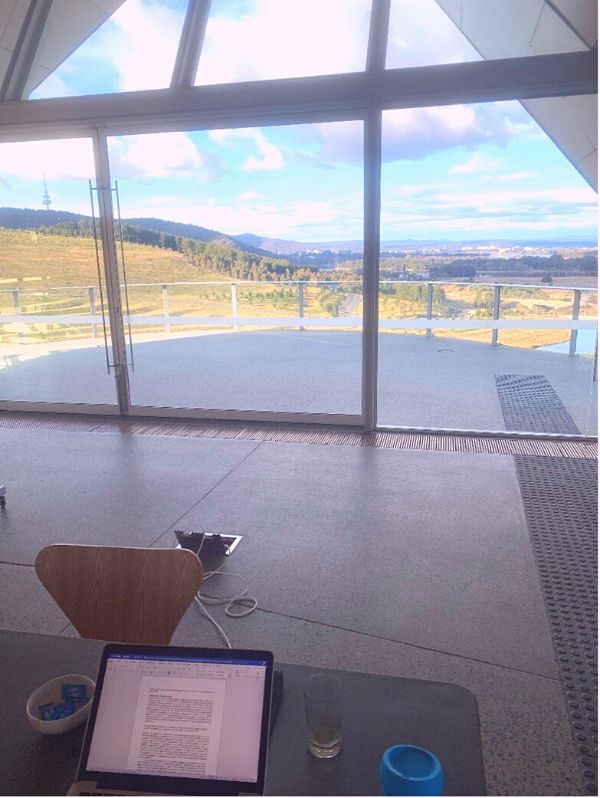
The UC research festival empowered researchers to share their research, build networks and collaborate across faculties. On the opening evening of the three day event Professor Katharine McKinnon, the Centre’s director, gave a keynote address on Learning to live ‘the good life’: Cultivating curiosity and building sustainable communities from an ethics of possibility’. The Centre also showcased the work carried out in each of the research groups, hosting a workshop on ‘Valuing diverse ways of knowing, being and doing: Learning for change’.
Dr. Ben Wilson and Dr. David Spillman, with Margie Appel and Dr. Mike Davies, also provided an overview of their work Teaching for Country: Exploring transformative opportunities in initial teacher education through enacting Indigenous way of knowing being and doing.
The CSC took the theme ‘Exploring Diverse ways of knowing’ into a workshop with guest facilitator Zsuzsi Soboslay. Zsuzsi’s workshop explored the many ways in which we, and many cultures have come to know ourselves in world. The session was insightful and inspiring as members of different faculties shared experiences from their own work and lives.
The CSC capped off a busy few weeks with its annual writing retreat. This year the retreat was hosted at the Arboretum with stunning vistas overlooking Canberra. The retreat is fast growing in value with attendees discussing the accountability to each other helps them focus on finishing drafts, book sections and grant proposals. More importantly, the writing retreat is an important way of bringing people together, building a sense of community and connection within the Centre!
New Book Release: Languages, Linguistics and Development Practices
July
Earlier this year, CSC member Deborah Hill and her co-editor, Felix Ameka, pubilshed a book titled ‘Languages, Linguistics and Development Practices’.

Edited edition of book features contributions from five CSC members.
The edited book, which opens a dialogue between linguists and development practitioners about language in development work, contains the work of four other CSC members: Jo Caffery, Ann Hill, Shange Fuentes and Barbara Pamphilon. Drawing on experience gathered from work in the Philippines and Papua New Guinea, the text demonstrates the gulf between global and local understandings of key development concepts.
Find out more about the book here.
Congratulations to Deborah Hill and the whole team for the efforts producing such critical work!
A consortium of presentations: CSC members share their research with broad communities
July
The past few months have been a prolific period of presentations and talks from our CSC researchers at various conferences and seminars across Australia.
In late May, Ann Hill led the way presenting on improving nutrition and health outcomes through local food systems at the Canberra Region Food Collaborative. Also in May, Ben Wilson and David Spillman presented at the ACT Education Directorate Leadership conference. Ben and David provided an overview of their Country-centric education and the need for school leaders to provide support to teachers.
In July CSC staff Ann Hill, Shang Fuentes, Justin See, Ben Wilson, David Spillman, Monty Nixon and Kerry Woodward all travelled and presented at the Institute of Geographers Conference in Armidale. The presentations spoke to the transformative nature of grassroot models of learning in sustainability as well as the power of touch in regenerative farming.
Presenting is a powerful way of sharing ideas, gaining exposure to new perspectives and building allyships across universities and communities. A big congratulations to everyone that has presented over the past few months!
Learn more about each of the presenters here.
Centre for Sustainable Communities Webinar Creative Universities: Reimagining Education for global challenges and alternative futures
Webinar Recording 19 May
Water security and gender equality: how a UC graduate addressed both to help Pakistani farmers
Elly Mackay
18 May 2022
Read the full story here.
Centre for Sustainable Communities Webinar Creative Universities: Reimagining Education for global challenges and alternative futures
Webinar via Zoom Thursday 19 May
4pm Canberra, 7am UK
Professor, Anthropology & Global Development
Respondents: Margie Appel, Shang Fuentes, Monty Nixon and Ann Hill, University of Canberra
How can we help students to better understand complex global challenges while at the same time imagining alternative responses to them? In this webinar, drawing on her book Creative Universities; Reimagining Education for Global Challenges and Alternative Futures, Anke shows that one way of achieving this is to combine critique with creativity in university classrooms. She argues, while students’ critical understanding of the complexities of global challenges and the limitations of many mainstream interventions are fundamental, it is equally important to enable students to move beyond deconstruction towards putting together again, in radically new ways. To this end, Anke proposes a critical-creative pedagogy that combines whole-person learning with creative design and arts methods, praxis and critical hope.
Respondents will offer reflections on chapters of Anke’s book based on their own professional experiences.
Faculty of Education 50th Birthday Celebrations!
25 March
The Faculty of Education, where the Centre for Sustainable Community is based, celebrated five decades of education in March! The event was originally planned for 2021 but was postponed due to COVID 19.
The event celebrated the Faculty's collective success through some incredible changes from our first year of student enrolment in 1971 at the School of Education, Canberra College of Advanced Education, through to 2021 as the Faculty of Education at the University of Canberra.
Activities included campus tours, a showcase of each decade of education at UC including technology over the years, a display at Mura Gadi gallery – co-hosted with the Australian National Museum of Education, and the opportunity to meet and engage with our research students: past and present, our researchers and teaching academics.
Congratulations to all our past and present graduates and staff members!
More information about the event can be found in The Canberra Times.
Researchers awarded Affiliated Schools research program grants!
15 March
Researchers in the CSC have been awarded two research grants as part of the ACT Education Directorate's partnership with the Faculty of Education.
The Affiliated Schools Program is a collaborative partnership between the University of Canberra and the ACT Government and a key initiative under the Territory’s Future of Education Strategy. The partnership is designed to enhance students’ learning outcomes. Details about the projects can be found below:
Empowering school leaders and local school communities through distributed leadership in the context of the Covid-19 pandemic.
Dr Bernard Brown and Dr Moosung Lee
This study arises from the context of the Covid-19 crisis and focuses on the functioning of distributed leadership in schools, practiced through school professional learning teams and their assigned leaders. The aim of the research is to gain a better understanding of how a distributed leadership model can be effectively enacted in schools. The outcomes of the research are expected to improve and enhance the leadership capacity, strategic management in the two ACT schools, using research evidence, leading to more effective leadership, especially in the context of crisis situations.
The research involves a three-dimensional analysis; 1) learnings from the Covid school closures from 2020 and 2021, 2) current situational analysis in each school, 3) future objectives and plans. The analysis includes school policy documents and data collection in the form of interviews/focus groups and a quantitative survey.
Equity & Curriculum form: Access and achievement in the ACT Senior Secondary Curriculum
Dr Philip Roberts, Dr Jenny Dean, Ada Goldsmith (UC team) in association with ACT teachers, ACT Education Directorate staff, ACT Board of Senior Secondary Studies (BSSS) staff, and academics from Murdoch and LaTrobe University.
This project aims to understand the relationships between students’ demographic characteristics and access and achievement in the ACT Senior Secondary Curriculum. It does so to understand the influences upon access to, and achievement in, the ACT senior secondary curriculum at an individual and institutional (school) level. International studies increasingly show that student access to, and achievement in, the curriculum is mediated by socioeconomic, institutional, and locational factors. The research will proceed along two interrelated strands. The first strand is a student level statistical data analysis in collaboration with the ACT Education Directorate and the ACT Board of Senior Secondary Studies. The second strand will involve focus groups, interviews, and surveys with parents, students, and teachers in at least two ACT colleges to understand the influences upon student and school decisions pertaining to subject offerings. Considered together, the project references the principles of equity, access, and inclusion of the ACT Future of Education strategy.
For more information please contact csc-admin@canberra.edu.au
CSC research work featured in the news!
4 March
It has been a busy start to the year with CSC research featured in several national news stories and partner publications! Here are just a few:
Dr Brernard Brown features in the Canberra Times discussing school closures and COVID-19: When will COVID-19 school closures end? And are they even necessary?
Dr Philip Roberts provides comment in the ABC news on staff shortages in rural schools: Rural teacher shortage hits new lows, leading to temporary school closure
Dr Jo Caffery's work in Papua New Guinea features in an Australian Centre for Interntional Agricultural Research (ACIAR) media release: A union of religious teachings, youth engagement and agricultural extension in PNG
Dr Barbara Pamphilon's work on ripple effect mapping features on the Cardno International Development LinkedIn page.
To learn more about the work CSC researchers email csc-admin@canberra.edu.au
March into Curriculum Research!
22 February
Associate Professor Philip Roberts will be participating in several online webinars during March focused on curriculum studies. If you would like to participate please follow the links to find out more information! These online webinars relate to topics in the edited book 'Curriculum Challenges and Opportunities in a Changing World'.
1st March: Transnational Curriculum Inquiry: Introduction to the field and book.
Co-presenter: Marie Brennan, Honorary Professor, Victoria University, VIC, Australia and Adjunct Professor, University of South Australia, SA, Australia
Webinar host: Australian Curriculum Studies Association
This session introduces the field of Curriculum Inquiry from a Transnational perspective, with reference to the recent book edited by Bill Green, Philip Roberts and Marie Brennan 'Curriculum Challenges and Opportunities in a changing world: Transnational Perspectives in Curriculum Inquiry'
8th March: Doing Curriculum research.
Co-presenter: Marie Brennan, Honorary Professor, Victoria University, VIC, Australia and Adjunct Professor, University of South Australia, SA, Australia
This session focuses on discussing the characteristics of curriculum research as a distinct form of academic inquiry. Some issues covered are the type of topics and issues addressed and the approaches that are employed. Internationally, the field of curriculum inquiry draws on a long history of theoretical debates intersecting with other fields of inquiry. Topics include questions of knowledge, and what and whose knowledge counts, the structure and the form of the curriculum and how these intersect with national, and jurisdictional, concerns.
Webinar host: Australian Curriculum Studies Association
11th March: Building Community: School Relationships through Curriculum in Rural Areas: An international conversation. Free International webinar.
Chair and co-organiser: Melyssa Fuqua (University of Melbourne, Australia) and co- organiser: Laurence Lasselle (The University of St Andrews, UK)
Panel: Philip Roberts (University of Canberra, Australia), Jayne Downey (Montana State University, USA), Gry Paulgaard (The Artic University of Norway, Norway), Sofia Marques da Silva (University of Porto, Portugal) and Tanya Ovenden-Hope (Plymouth Marjon University, UK).
Webinar host: The European Education Research Association Network 14.
This panel will interrogate the relations between schools, families, and communities from around the world as they seek to improve education for youth in rural areas, with a particular focus on curriculum and its enactment. Panellists consist of scholars from various international contexts – Australia, USA, Norway, Portugal, and England. They will share insights into what is being done within their schools and education systems to strengthen relationships between the school and community. With many education systems and policymakers continuing to focus on a type of ‘equity’ that values metrocentric norms and goals (Bæck, 2016; Beach et al., 2019; Green, 2013; Passy & Ovenden-Hope, 2020; Paulgaard, 2017; Roberts, 2014; Roberts & Green, 2013;) to the detriment of rural knowledges and people, panellists argue that place-consciousness is needed to improve not only educational outcomes for rural youth, but for the sustainability of the communities themselves. This online event will have dedicated time for discussion and interaction with the panel.
CSC co-hosts Community Economies Research Network Asia symposium
11 February
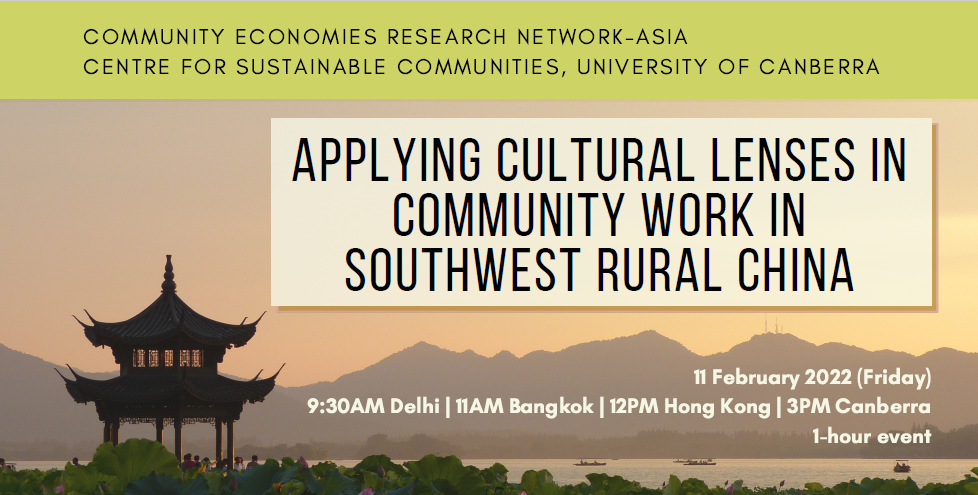
CSC researcher Dr Ann Hill co-facilitated the latest symposium of The Community Economies Research Network (CERN) Asia on Friday 11 February titled ‘Applying Cultural Lenses in Community Work In Southwest Rural China’
At the symposium Edward Chan and Freda Ng. Edward and Freda presented on their work that is featured in a book: When Cultural Reflection Meets Agriculture: Facilitators' Notes, available here: http://www.pcd.org.hk/sites/default/files/publications/pcd_collaborator_final-web.pdf . This book captures the experience of PCD team and their community partners in promoting sustainable agriculture through community work with a strong emphasis on cultural reflection.
This was the latest symposium in an ongoing series hosted by the CERN. The CERN is an international network of researchers, activists, artists and others who are interested in ways of enacting new visions of economy. In particular, the network is interested in the productivity of understanding diverse economies and building more ethical economic and ecological relationships. The charter of CERN dovetails several research projects and community economies research interests within the CSC.
Recordings of past CERN Asia CSC events are available via YouTube: https://www.youtube.com/channel/UCTvkl1J1feq35qPyPywZYJA/search?query=CERN%20Asia
The next CERN Asia symposium in May 2022 date TBC will feature the work of Dr Justin See who is currently a postdoctoral fellow in the CSC.
For more on CERN visit https://www.communityeconomies.org/about/ce-research-network-cern
PNG researchers invited to present their youth empowerment extension approach at an international conference
7 February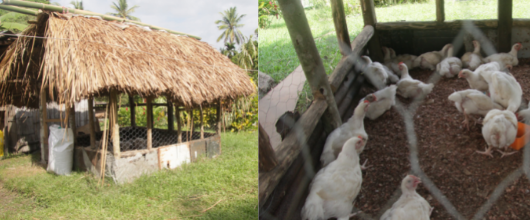
Key PNG project researchers, Lalen and Kiteni, along with the project leader, Jo, have been invited and funded by ACIAR to disseminate their unique youth empowerment extension approach to a global audience at the Australasian-Pacific Extension Network (APEN) 2022 international conference.
The project, Gender-equitable agricultural extension through institutions and youth engagement in Papua New Guinea, has involved the development of a wholistic approach to extension training that is extrinsically linked to participants’ lives and context. The approach considers participants’ culture, language, land, environment, social, agricultural and religious practices, norms and habits to develop a more appropriate training solution.
One of the principles underpinning the project is that the empowerment of female and male youth in an agricultural setting, as well as harnessing participants’ own knowledge, lived experience, concerns and languages contributes to better development outcomes for participants and future generations of PNG.
The project’s wholistic approach to extension training is proving effective in meeting the participants’ needs using environmentally, linguistically and culturally appropriate practices. By using our wholistic approach, more youth and their families are adopting sustainable farming practices. Our wholistic approach has also helped the project to be truly participatory by having local people run the project.
Our innovative grassroots approach to sustainable family farming research was developed by the UC and PNG research teams. The opportunity to participate and present our approach in this conference will further the scientific impact of research amongst a community of extension specialists throughout the Asia-Pacific and expand the scope of discussion in the conference to developments occurring in developing and developed countries. Our work is among exciting trends in agricultural extension research, which emphasise the importance of gender and social inclusion, pro-poor extension, social capital, and positive livelihood outcomes.
The project will promote UC’s excellent and innovative research capacity to an international and national audience, champion UC as an international expert in capacity building in development, and lead to partnership opportunities, publications and further presentations.
For more information about the project please contact csc-admin@canberra.edu.au
ACIAR-sponsored intern nominated for prize as part of water management and women empowerment project in Pakistan
7 February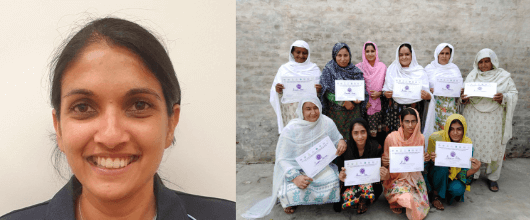
Ms. Gowri Pincombe, an ACIAR sponsored intern, has been nominated for the Student Water Prize offered by the Australian Water Association (ACT). A student in the Faculty of Arts and Design, Gowri’s Master of International Development research project was carried out as part of a project led by the CSC’s Dr. Sandra Heaney-Mustafa, Developing approaches to enhance farmer water management skills in Balochistan, Punjab and Sindh in Pakistan.
Water, an essential resource for human life, health and economic wellbeing is being overused by domestic, industrial and agricultural users throughout the globe. Pakistan is no exception. As Ms Pincombe notes in the recent report Women’s Empowerment Through Learning and Working Together:
Water security issues relating to agriculture range from water scarcity, low water productivity, water misuse and pollution, groundwater depletion, and effects of climate change, amongst which water wastage due to poor irrigation methods is a key challenge faced by rural farmers in particular. Therefore, effective water management practices will play a significant role in poverty alleviation and food security and will also be a key contributor towards water security in Pakistan (Pincombe, 2020).
Water security issues also intersect with gender inequality. Pakistan ranked lowest in the South Asian region and the third lowest in the world for gender equality in 2020 according to the Global Gender Gap Index. The ACIAR project therefore sought to address not only water and irrigation management through a newly developed Farmer Integrated Learning Model (FILM) but also to engage with and empower women. Gowri conducted virtual interviews and focus groups with women and men in villages to elicit why women were actively engaged in the project and how to sustain activities into the future.
The ACIAR funded internship was an excellent example of cross-faculty cooperation to enhance the student learning experience, as well as productive cross-sectoral partnerships between government bodies, NGOs and institutions including universities in Pakistan. The project also demonstrated that good international research can be conducted virtually.
The FILM is already being utilised and refined in the Adapting to Salinity in the Southern Indus Basin (ASSIB) project, an ACIAR funded initiative lead by Charles Sturt University with heavy involvement from Dr Heaney-Mustafa from the CSC. The refined model will also be utilised in the Groundwater Management in Pakistan project currently being developed, which features collaboration between several Australian and international organisations and universities including the CSC.
For more information about the project please contact csc-admin@canberra.edu.au
CSC researchers to present at the workshop: ‘Reparation: a way forward?’
3 February 2022
CSC researchers Ben Wilson, David Spillman, Rohan Nethsinghe, Ann Hill and Katharine McKinnon presented a session at the workshop 'Reparation: a way forward?' hosted by the University of Melbourne. The details of the session are as follows:
Title: 'Building and repairing relationships with Country: Towards an ecocentric understanding of reparations'.
Abstract: Conversations around reparations are usually generated and carried out with a view to ameliorating the socio-economic injustices that have been wrought on communities through genocide, slavery, and the ongoing colonial project. In many cases these conversations have led to desirable outcomes for individuals and communities, and should be celebrated as the necessary and poignant victories they indeed are. However, these conversations often miss the opportunity to discuss ways that reparations can be used to benefit our broader ecological communities, of which human beings are merely a part. Such discussions are particularly critical for educational institutions and organisations operating in a world going through vast and long-standing environmental destruction.
This workshop will draw upon Indigenous ways of knowing and doing to catalyze a discussion on how reparations may be viewed as programs that return individuals to a deeper and more authentic relationship with the places they inhabit. These ways of knowing are deeply embedded in sustainable ways of living, and utilize embodied experiences including song, dance, and art to move participants beyond purely rational ways of understanding the world. It is hoped that lessons from this workshop will help university academics build more sustainable and ecologically honourable approaches into their work as educators and researchers, thus reshaping the discourse around reparations in an increasingly environmentally fragile world.
More information on the work of the CSC researchers can be found by contacting csc-admin@canberra.edu.au
CSC researcher to present at UC’s 2021 Indigenous Research Symposium
16 December
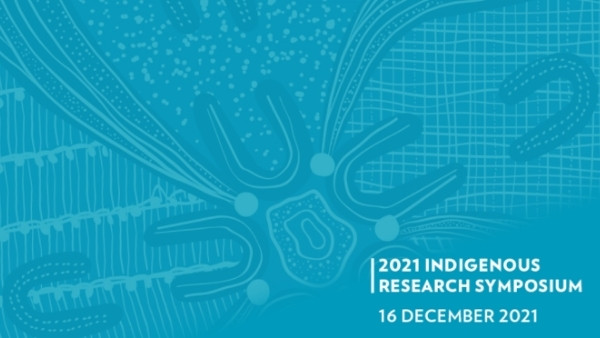
The Indigenous Research Symposium showcases research that benefits Aboriginal and Torres Strait Islander peoples. The event is hosted by the UC Collaborative Indigenous Research Initiative (UC CIRI), a network at the University committed to promoting, connecting and growing UC's Indigenous research interests.
Assistant Professor Ben Wilson will be presenting on a project that aims to help University educators embed Indigenous ways of knowing into their curriculum.
His presentation, "Teaching for Country: Exploring transformative opportunities in initial teacher education through enacting Indigenous ways of knowing, being and doing”, seeks to create interest and confidence in embedding teaching for Country (and caring for Country) in unit planning and student engagement in these approaches to teaching.
For more information about the project please contact csc-admin@canberra.edu.au
CSC researchers to focus on identifying successful school practice in new education research centre
9 December 2021
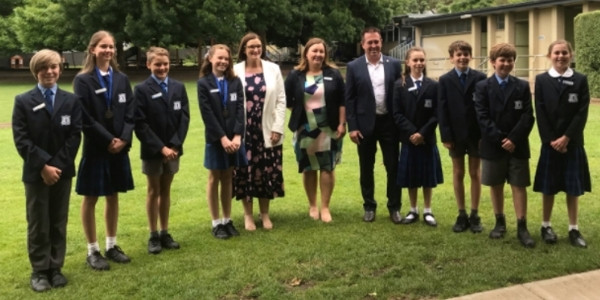
Congratulation to Phil & Deb P who have been awarded a grant from NSW Department of Education with a consortium of universities (UNSW, CSU, UC) worth over $2.5 mill in phase one (2022), with a further two years of funding accumulating to $6m in total. The UC team is led by Philip Roberts, with Deborah Pino-Pasternak, Chris Morrissey and Matthew Brown.
The Ambassador Schools program is a NSW Department of Education initiative to identify a small number of high-performing schools, identify the characteristics that make them high-performing, study that practice, and share insights with the system. This is part of the NSW School Success Model.
Phase one is directed at identifying the characteristics of exemplary practices. There are then a further two years to be funded to trial and expand those practices across the NSW system. UC team members will be leading the rural school component.
For more information see the NSW Department of Education media release for the project.
Affiliated Schools Network 2021 Annual Conference
Friday the 22nd of October
The CSC is proud of its ongoing partnership with The ACT school’s directorate through the Affiliated Schools Network. The Affiliate schools network provides bridges between research, future teachers, and local schools to ensure the ongoing integrity of student learning outcomes in the ACT schooling system.
The Centre currently has two funded research projects through the network with a partnership in a third. Each of these research projects were showcased at this year’s Annual Conference.
The 2021 Annual Conference was held online as series of presentations. The CSC invites you to find out more about each of the projects below!
Embedding Indigenous Ways of Knowing, Being and Doing in Higher Education
Presenters: Ben Wilson and David Spillman
Presenter: Deborah Pino Pasternack
Presenters: David Spillman and Katharine McKinnon
CSC researcher appointed Chief Editor of Curriculum Perspectives journal
The CSC would like to congratulate Associate Professor Philip Roberts on his appointment as Chief Editor of the journal Curriculum Perspectives.
The journal publishes articles that promote innovative curriculum thinking, multiple ways of knowing and understanding, and critical and creative problem solving to develop solutions that can make a difference in the lives of students and their communities. This journal brings Australian curriculum scholarship to the world and encourages an international exchange of ideas that can enhance curriculum experiences for students across the globe.The journal is the official journal of the Australian Curriculum Studies Association.
Philip is an Associate Professor of curriculum inquiry and rural studies, and has been an executive member of the Australian Curriculum Studies Association for several years. He was Associate Editor for five years before becoming Chief Editor of the journal.
 Country as Teacher
Country as Teacher
Assistant Professor Benny Wilson was interviewed on ABC Radio Canberra recently following the launch of the Country as Teacher program at Lake Tuggeranong College: an Affiliated School in the UC Faculty of Education and ACT Education Directorate Affiliated Schools Partnership.
Here is the interview.
Ebook publication announcement
CSC is delighted to advise that a publication co-edited by CSC Adjunct Professor Dr Shirley Randell AO on the creation of the Centre for Gender, Culture and Development in Rwanda in 2009, is now available.
The publication, Gender and Learning in Rwanda, features chapters by the first academics and stories by the graduates of the Centre - all exceptional people.
UTS has published this ebook under a Creative Commons license so it is available for many from the developing world to read. It is also available to you, for free, by clicking on the following link - doi.org/10.5130/aag.
CSC Research Seminar
Ways of Seeing Women’s Leadership in Education: Metaphors and Images in Stories of Rwandan and Bangladeshi Women Leaders
Professor Shirley Randell
AO, PhD, Hon.DLitt, FAICDLife, FIML-ANZ, FIPAA, FACE,
President, Independent Scholars Association of Australia,
Associate, Centre for Sustainable Communities, Faculty of Education, University of Canberra
Monday, 16 August 2021
CSC - Professor Shirley Randell_Ways of Seeing Women’s Leadership in Education - 16 Aug 2021.mp4 from UC Faculty of Education on Vimeo.
Radio interview: Future of food in the Canberra region
Sunday 25 August, 11am-noon, Goulburn community radio 2XX
Dr Ann Hill participated in a radio interview with Rod Taylor and the ACT Environment Minister Rebecca Vassarotti about the Future of Food in the Canberra region. This included a discussion of 'Ten Journeys on A Fragile Planet' by Rod Taylor.
Ann discussed how people can and do work together at a grassroots level to affect economic, social and environmental change. She drew on her work with international communities in the Asia-Pacific region who have extensive experience working through challenges together to emerge stronger. Of particular importance in this work is the role of schools and universities in teaching about sustainability issues with cross-cultural and collective sensibilities.
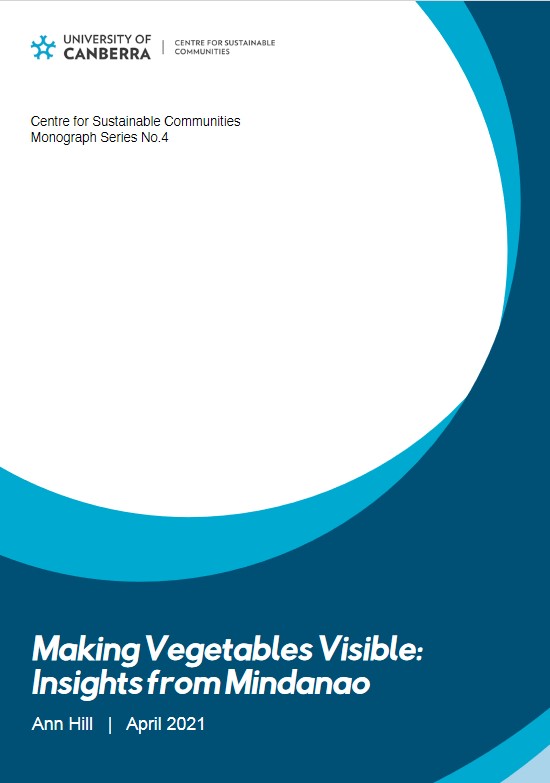
Ann has recently published a monograph highlighting some of this work.
International Symposium: ‘Exploring Teacher Recruitment and Retention: contextual challenges from international perspectives’
Associate Professor Philip Roberts participated in an invited symposium at the British Education Research Association (BERA) conference discussing international challenges of recruiting and retaining teachers. This work relates to the publication 'The challenges of staffing schools in a cosmopolitan nation: Rethinking the recruitment and retention of teachers in Australia through a spatial lens'
A recording of the event can be found on the BERA website.
An ongoing research theme of the Rural Education and Communities Research Group is the staffing of rural schools in Australia. Philip is currently editing an edition on this topic 'The rural school challenge: International comparisons in the staffing of rural schools' with Natalie Downes and Dr Melyssa Fuqua (University of Melbourne). The edited edition is due to be released in 2022.
New edited book: Ruraling Education Research
The Rural Education and Communities Research Group Leader, Dr Philip Roberts, and Dr Melyssa Fuqua (University of Melbourne) published a co-edited volume of work titled 'Ruraling education research: Connections between rurality and the disciplines of education'
This edited volume brings together a collection of chapters from leading scholars in rural education with the purpose of linking knowledge from the rural education field to the wider discipline of education studies. Through addressing significant issues in the rural education field, the book gives insights from rural education that have general relevance for the wider disciplines of education, and provides up-to-date scholarship in research in rural contexts.
This book aims to be a definitive and comprehensive edition of contemporary rural education scholarship that works as a guide for those new to researching in and for rural contexts, as well as actively expand the other sub-fields of education from a rural perspective. It examines the connection between rurality and the other domains of educational research, exploring what a rural perspective might bring to the broader fields of educational research, and how it might evolve them. In its unique approach, this book brings the concept of ‘rural’ to the disciplines of education; chapters regarding the ethics of research in the rural context speaks to a gap in rural education, and provide tools for engaging marginalised communities more generally in educational research.
For more information please email rural@canberra.edu.au
CSC Webinar
Inclusivity, Livelihoods and Learning
Friday 21 May 2021, 11am-1pm - Canberra; 8am-10am - Perth; 8pm-10pm (Thursday) - Santiago
The Centre for Sustainable Communities conducts research to build sustainable livelihoods, foster lifelong learning, and create inclusive institutions that value diversity. Using co-design and place-based community engagement we focus on building partnerships through action research as a way to support the emergence of genuinely inclusive and sustainable communities. Pressing global challenges and events of the past year have prompted fresh consideration of the unsustainable nature of contemporary economic, social and ecological conditions – in this moment what can a place-based approach achieve? What does effective, respectful community engagement look like? What role can research play?
The Centre for Sustainable Communities brought together leading scholars and practitioners to explore these through three conversations focused on:
- Indigenous ways of knowing, being and doing with Jill Milroy, UWesternAus
- Indigenous-led Codesign for sustainable livelihoods with Alison Guzman, MAPLE Microdevelopment Chile
- Diverse ways to survive well together with Katherine Gibson, University of Western Sydney
For more information please email csc-admin@canberra.edu.au
CSC webinar_Inclusivity Livelihoods and Learning_21 May 21.mp4 from UC Faculty of Education on Vimeo.
New edited book:Curriculum Challenges and Opportunities in a Changing World
The Rural Education and Communities Research Group Leader, Dr Philip Roberts, published an edited book with Emeritus Professor Bill Green (CSU) and Professor Marie Bennan (UniSA) titled 'Curriculum Challenges and Opportunities in a Changing World Transnational Perspectives in Curriculum Inquiry'. The edited edition is part of the Curriculum Studies Worldwide book series (CSWW).
This book brings together voices and perspectives from across the world and draws in a new generation of curriculum scholars to provide fresh insight into the contemporary field. By opening up Curriculum Studies with contributions from twelve countries - including every continent - the book outlines and exemplifies the challenges and opportunities for transnational curriculum inquiry. While curriculum remains largely shaped and enabled nationally, global policy borrowing and scholarly exchange continue to influence local practice. Contributors explore major shared debates and future implications through four key sections: Decolonising the Curriculum; Knowledge Questions and Curriculum Dilemmas; Nation, History, Curriculum; and Curriculum Challenges for the Future.
CSC Workshop
Indigenous ways of knowing, being and doing and the Academy
Hosted by Uncle Paul Gordon
Friday, 30 April 2021
The CSC has the opportunity to learn from Uncle Paul Gordon about Aboriginal approaches to teaching and learning, encapsulated in the 6Ls: Lore, Love, Look, Listen, Learn, Lead, an example of cultural continuity, opening a discussion about the value of this age-old teaching and learning system to social and ecological healing, and how we might incorporate this approach in our work.
The 6Ls underpin the approach in the Building Cultural Integrity with 'Country as Teacher' research project in ACT schools which aims to embed in classroom practice deep respect for place-focused, ecocentric pedagogies that have been part of teaching and learning in Australia for centuries.
CSC Community of Practice
Methods for Participatory Research in COVID
The CSC is hosting an online community of practice to provide a space for discussion, exchange, and experimenting with new approaches to meet the challenges (and opportunities) of conducting participatory research during a pandemic.
There is opportunity for open discussion, and for folks to present ideas on key topics they would like to bring to the group during the coming months.
In the initial session (recording below) we hear from Dr Deb Hill about how she has been meeting the challenge of conducting action research in Melanesia, from a distance.
Recording of the inaugural meeting of the PAR in COVID - Community of Practice
31 March 2021
Watch on VIMEO: PAR in COVID - 31 March 2021
EduResearch Matters publication: The sociocultural experience of rural students at university
Natalie Downes and Philip Roberts, along with Samantha McMahon (USyd) and Kristy O'Neill (UNE) published a short article titled 'People call me “bogan”: how to mend the country-city divide in higher education' for the Australian Association for Research in Education blog 'EduResearch Matters'.
This piece provides insight into issues of different social and cultural capitals of rural and metropolitan peoples, especially how students navigate what it means to be rural in universities that don't appear to value their knowledges and experiences. It highlights implications for university coursework, rural careers, and the sustainability of rural communities.
The publication draws from the results of the project 'The sociocultural experiences of rural students at university'. This is a project that aims to help make university transitions simpler for rural, regional and remote students and enhance their achievement once they begin their studies, by minimising the obstacles they may face.
CSC Book launch
Towards Collaborative Research in International Development - The Central Role of Social Science.
Authors John Sprigg, Barbara Chambers discuss their book with CSC's Barbara Pamphilon. Carol Kayrooz was unavailable for the discussion.






